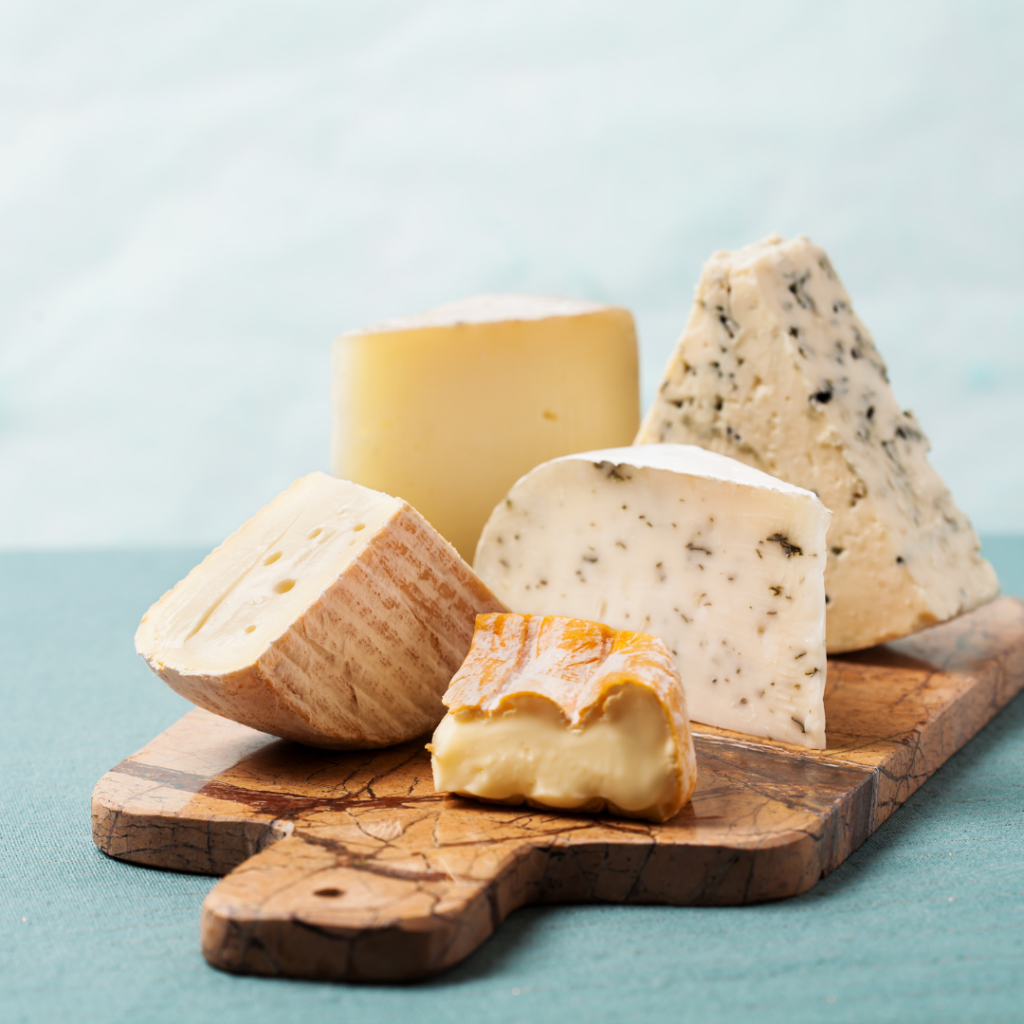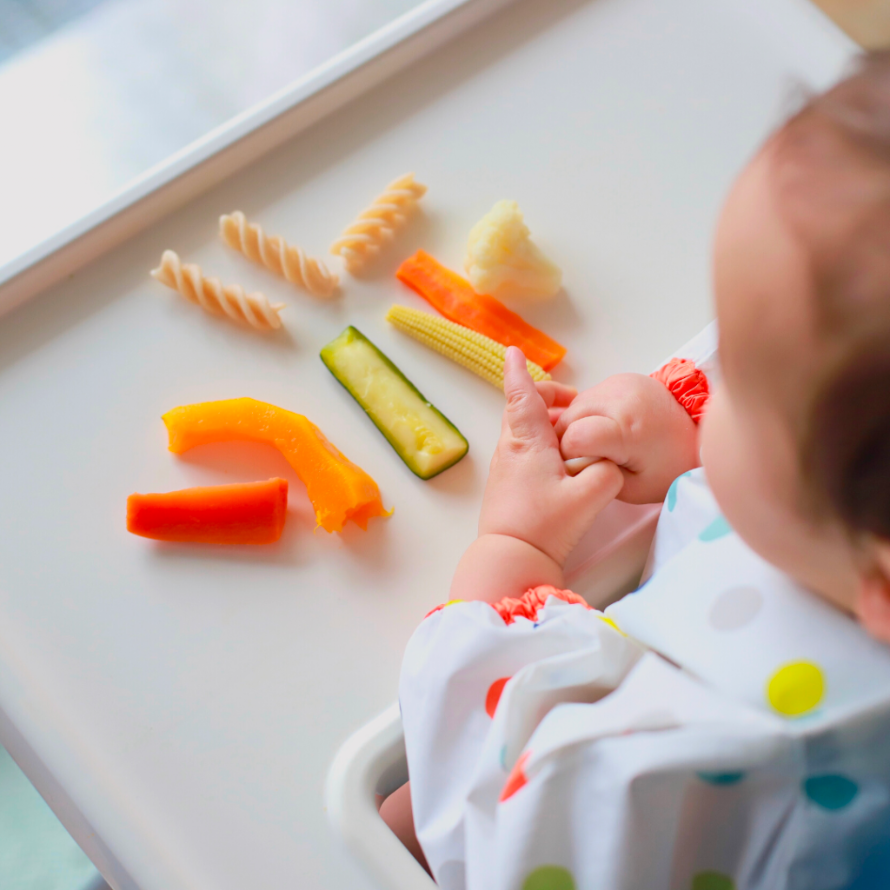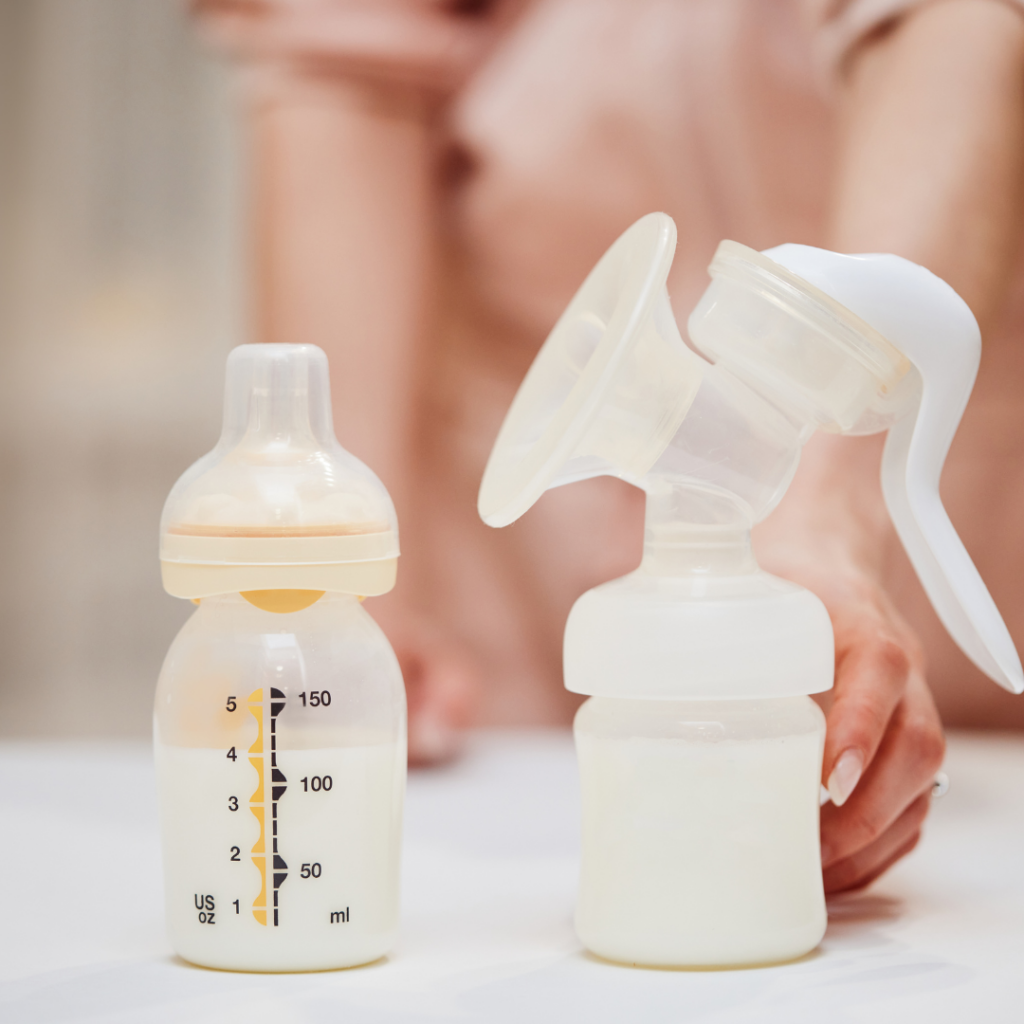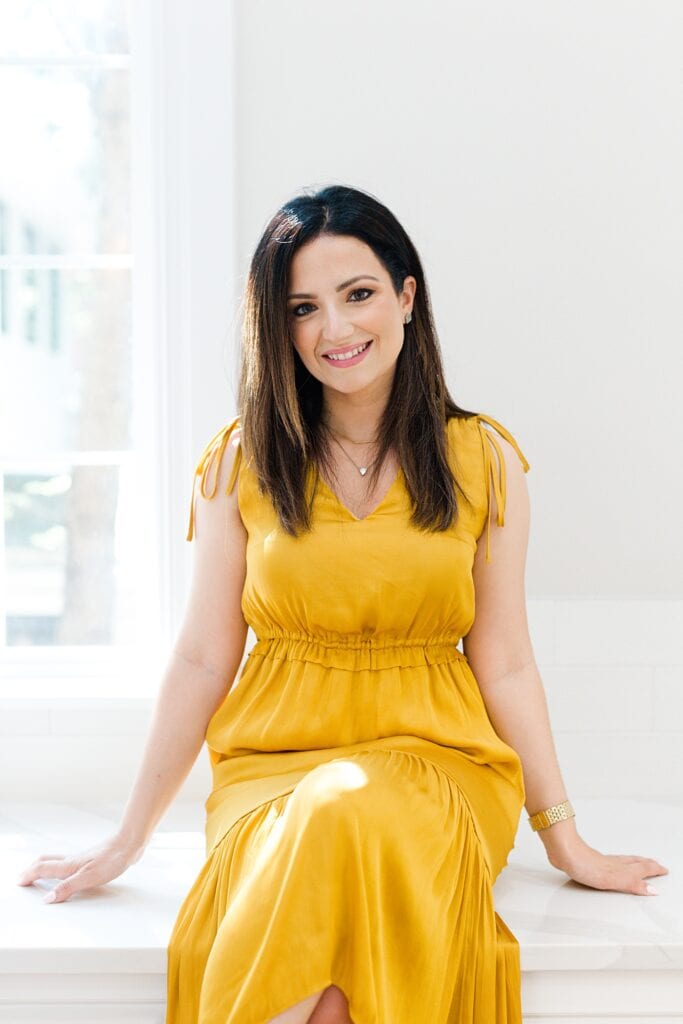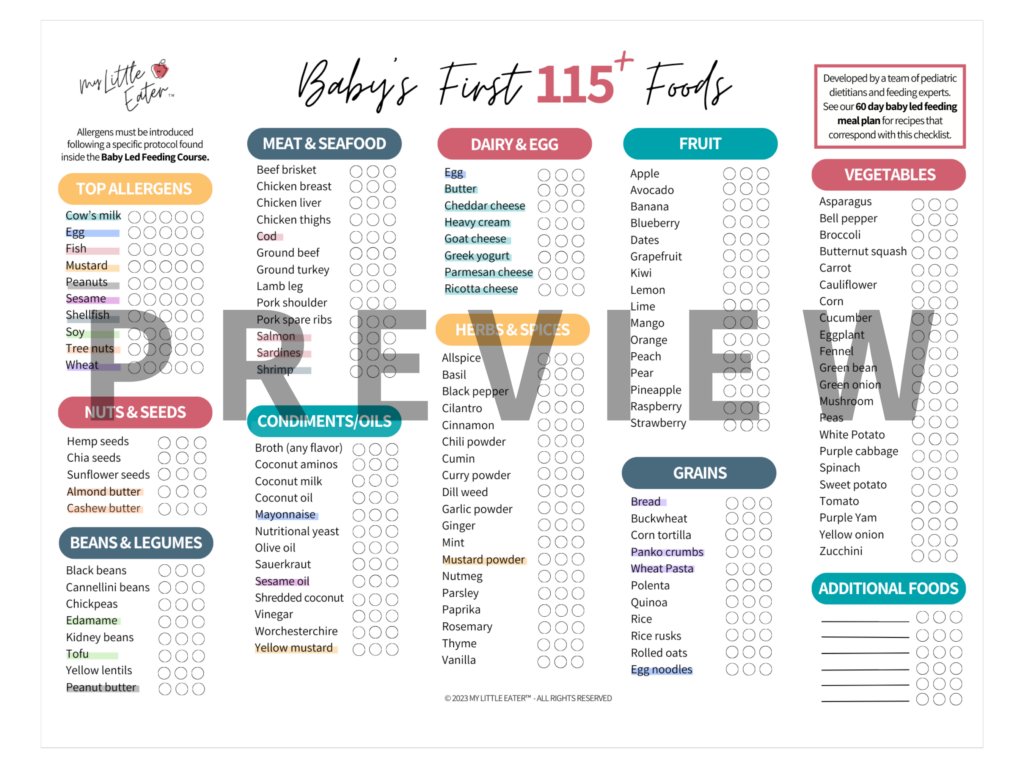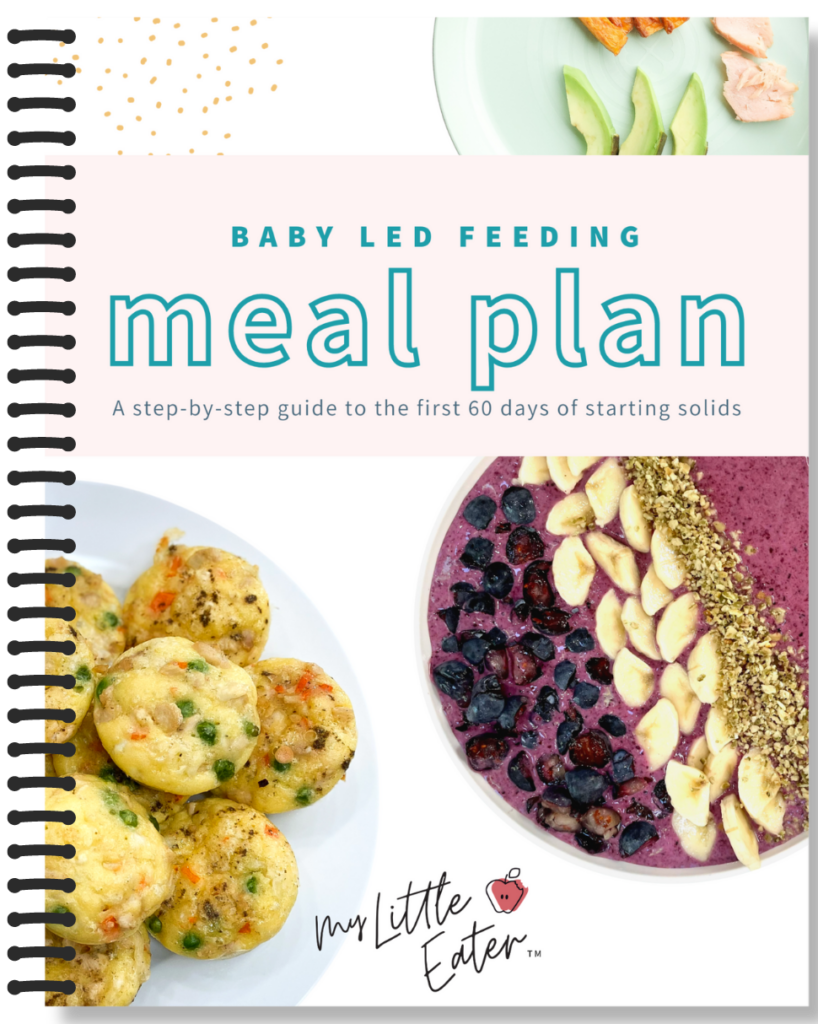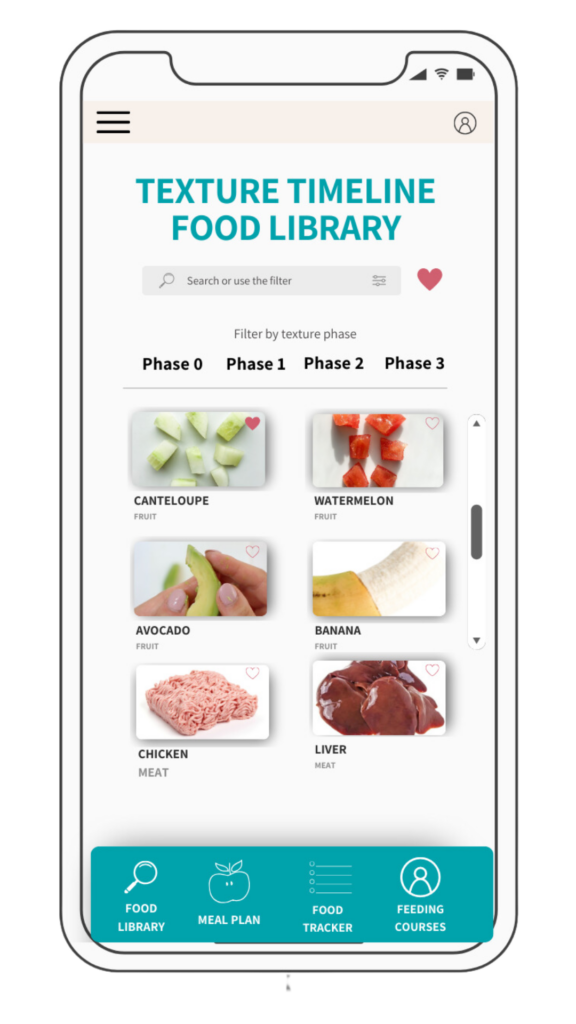This post may contain affiliate links, see our disclosure policy for details.
Toast with a delicious spread is a great go-to food when you’re busy and need a quick snack or meal. It can be prepped in less than 2 minutes and can provide some good nutrition for your baby when you choose a healthy toast topping. But on the flip side, it’s easy to become stuck in a rut with toast, offering the same toast topping again and again.
That’s why we’re showing you our top 10 nutritious toppings for your baby’s toast – all easy and dietitian-approved! Plus, we’ll go over why toast strips are the safest option for your 6-month-old, and how to serve it as they get older.
If you’re just getting started with solids, or have been doing it for a while but feel stuck with what to serve next, check out our Baby Led Feeding online course. Find research-backed knowledge on things like proper allergy introduction protocols, what products you need (and don’t), how to know your baby’s ready to begin, when and how to introduce cups, and lots more!
We also include a Texture Timeline™ Food Video Library that teaches you how to safely serve foods based on the phase of the timeline your baby is in. This allows you to gradually ease into solids at a pace you’re comfortable with, search for various foods to find out how to serve them, and give lots of ideas if you’re not sure what to try next! Learn more about the Baby Led Feeding online course and get started today!
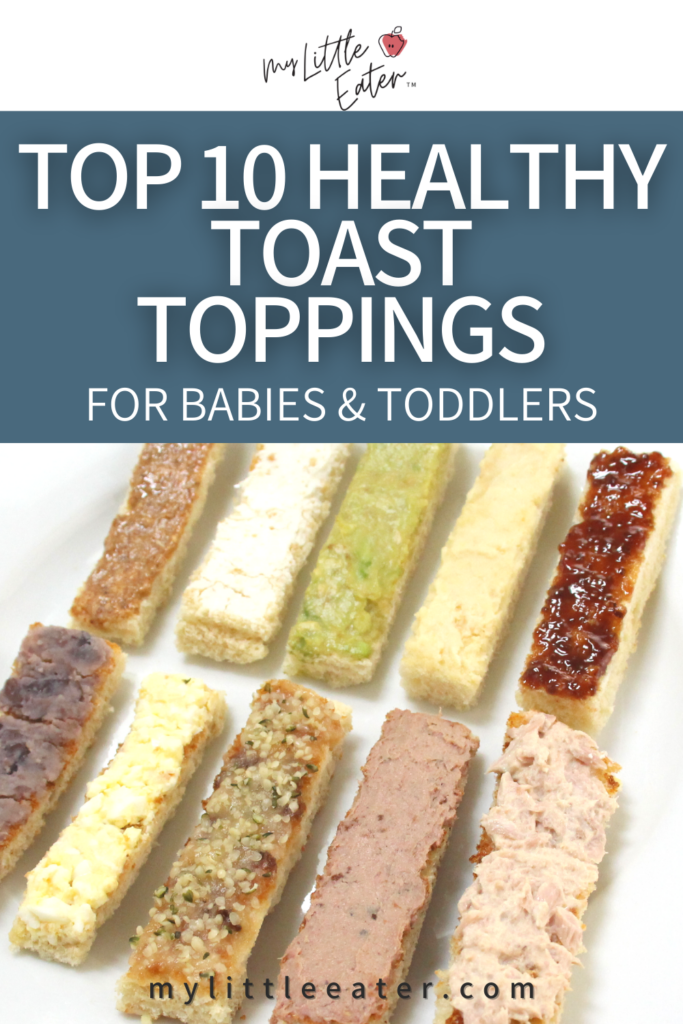
Table of Contents
Adding a healthy toast topping when serving toast to babies and toddlers has both nutritional and safety benefits that we’ll get into later on. We’ll also chat about why we’re choosing to serve toast over fresh bread, how to cut it safely depending on age, and what to look for when shopping for bread.
Here’s a sneak peak into the toppings we’ll share – don’t worry, we’ll include everything you need to know below!
TOP 10 HEALTHY TOAST TOPPING
IDEAS FOR BABIES
-
Nut or seed butter
1.
-
Cheese
2.
-
Avocado
3.
-
Hummus
4.
-
Smashed berries
5.
-
Beans
6.
-
Eggs & yogurt
7.
-
Banana & hemp seeds
8.
-
Liver
9.
-
Salmon or sardines & mayo
10.
When can babies eat toast?
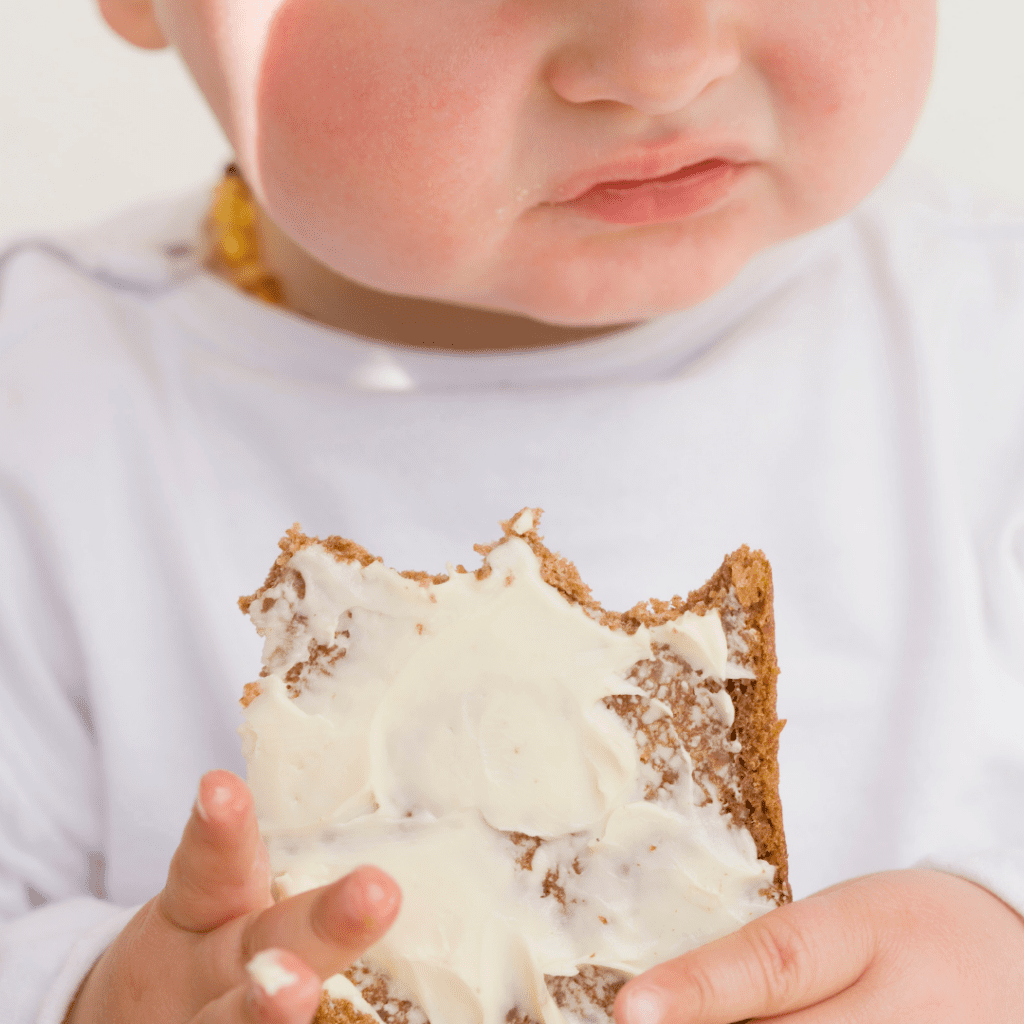
You may be wondering if and when toast is a safe food to introduce to your baby. Toast can be introduced at around 6 months of age, or at the time when it’s safe to introduce solids to your baby. The exact age for this will depend on if your baby is showing all the developmental signs of readiness for starting solid foods.
Toast is actually one of the first foods we recommend for starting your baby on solids! It’s important to note that while toast is safe for babies to eat at 6 months, fresh or un-toasted bread isn’t, and is considered a choking hazard. But don’t worry, we’ll be explaining that more and will go over how to prepare toast safely for your little one, below.
Choosing a bread for your baby or toddler
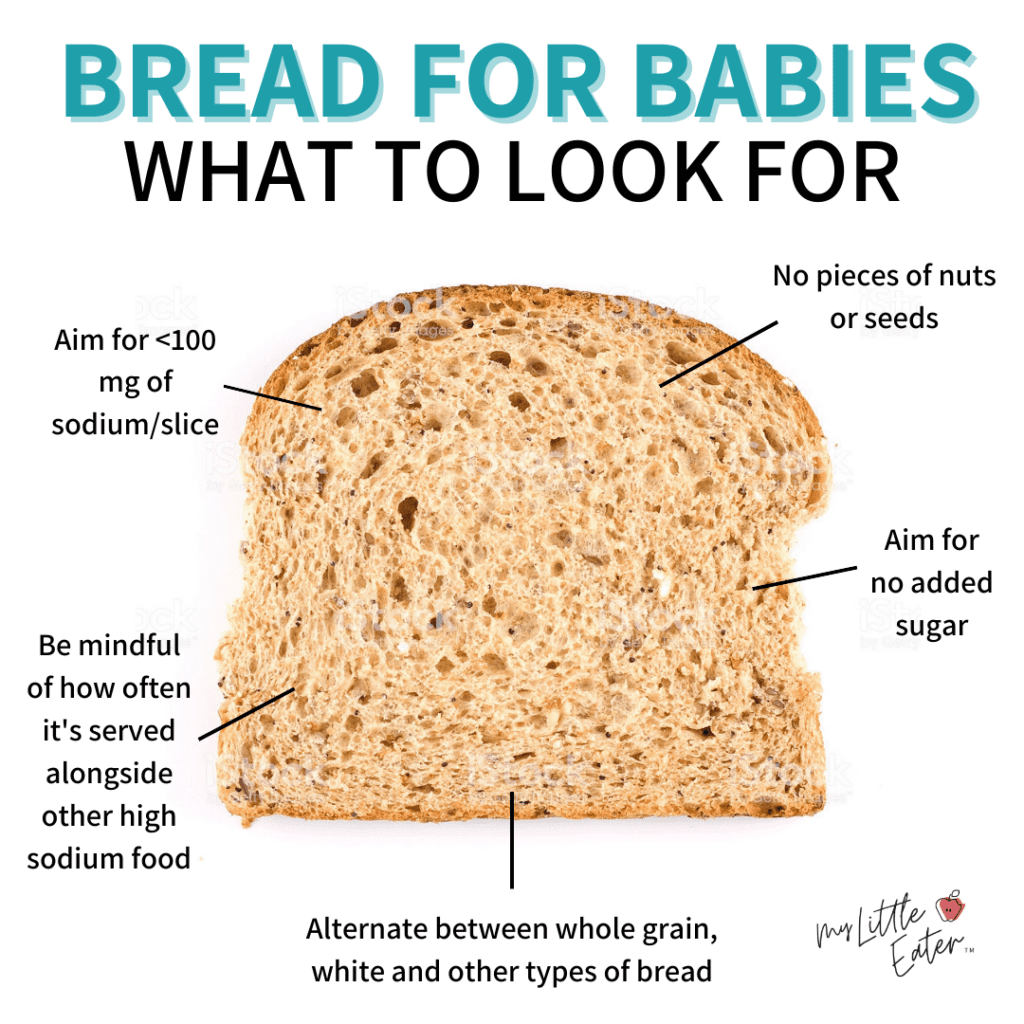
With so many options for bread these days, it can be time consuming to read all the labels and figure out which bread is best for your baby.
A couple of key things to note when choosing the best bread, are:
- Make sure that there are no large seeds, like pumpkin or sunflower seeds, in the bread as they’re choking hazards for babies and young toddlers.
- Ensure that the bread is free of honey as an ingredient for babies under 1 year old.
- Switch it up by not always opting for the basic whole wheat bread. Pumpernickel, sourdough, and other breads can be used as well.
To learn more about our other recommendations on choosing the best bread for your baby, including what to check for on the nutrition label, how to choose a type of bread (ie. white bread, whole grain breads, etc.) see our blog post all about bread for babies. We also include our top brand recommendations to help narrow down your search while shopping!
Fresh bread vs. toast for babies
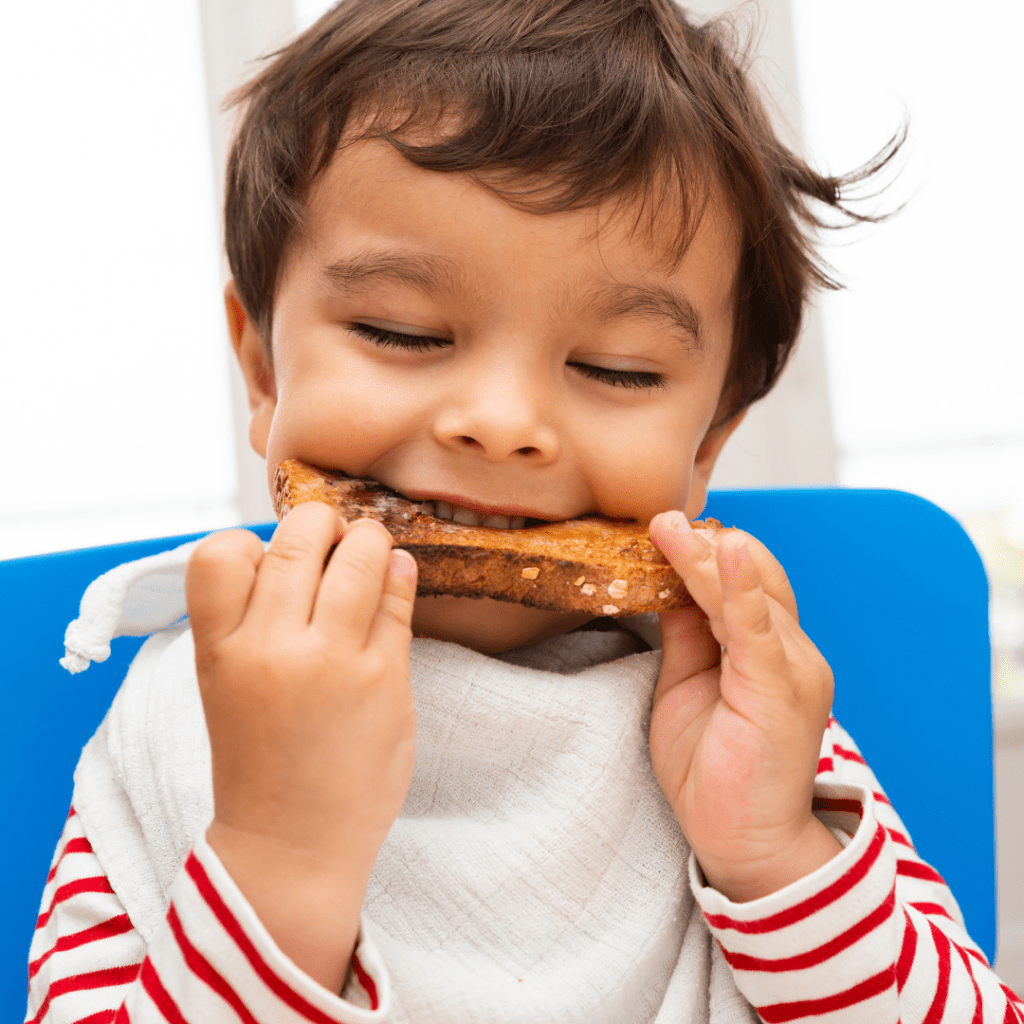
For babies, we always choose toast! Fresh, soft bread is considered to be a choking hazard, as mentioned above. This is because it tends to gum up and form balls in babies’ mouths, which could then get lodged in the airway. When prepared properly, the risk is greatly reduced.
To help prevent choking, you can lightly toast the bread to make it slightly firm. This also makes it easier for your baby to hold as it won’t be too soft and therefore won’t fall apart as easily.
We always get a ton of questions on how long to toast the bread for, but honestly, this varies and depends on the type of bread you’re using, and what toaster you have! Generally, you want to toast the bread until it becomes a light brown color and can break apart easily. If it’s toasted for too long, it may become too crunchy and dry.
Spreading a topping on toast can help make sure it’s not too dry for your baby! If you still don’t feel confident knowing exactly how long to toast the bread for, we’ve got you covered! Check out the demo below on what texture you should look for when toasting bread so that it’s safe for your baby to eat.
When can babies eat bread that's un-toasted?
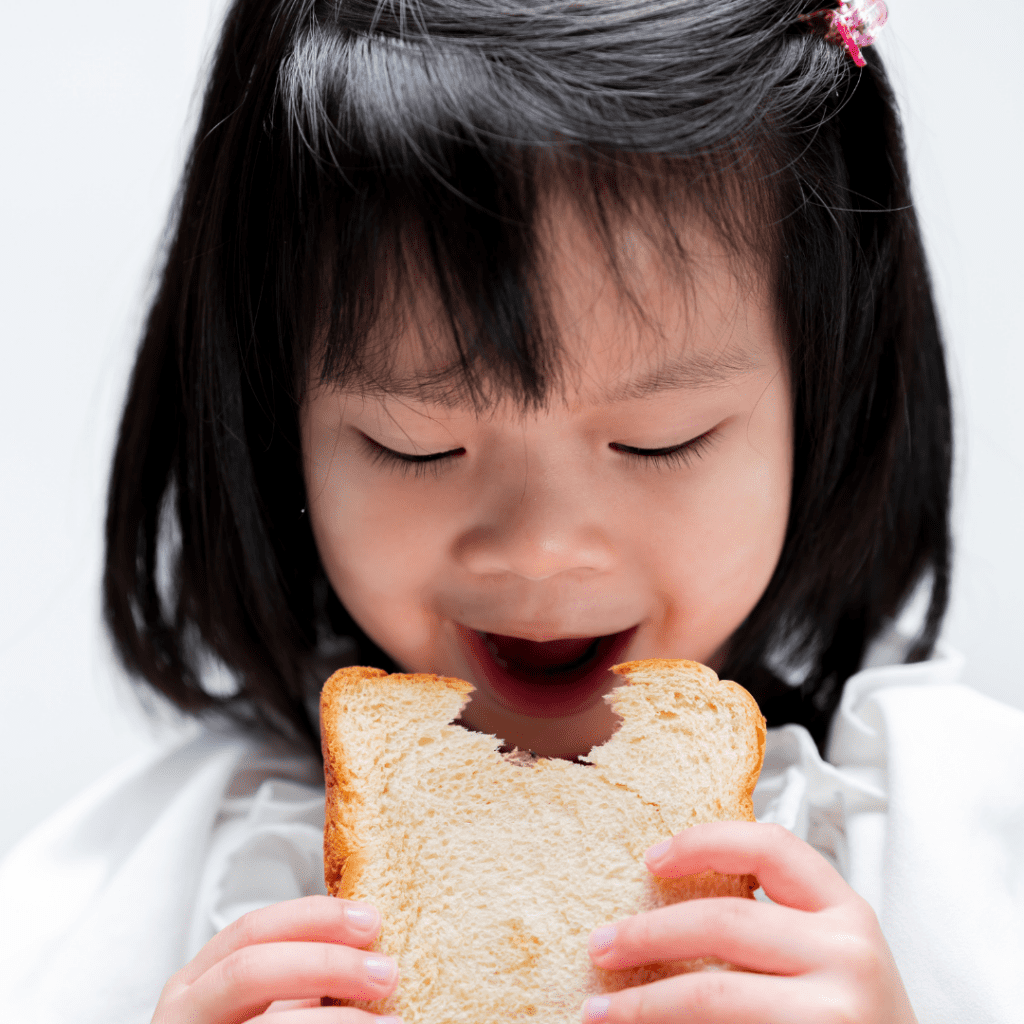
This will depend on your child and their chewing skills. Generally, around 18 months of age is when they’ll have developed their chewing skills enough that they can safely move un-toasted bread around in their mouth, even if it gums up a bit.
We recommend continuing to toast bread until then, at which point you can try a bit of un-toasted bread to see how they do. Continue toasting it if you notice they struggle with it, or if you just feel more comfortable giving them a bit more time. At the end of the day, you know your baby best and are the best one equipped to decide whether your baby can handle something new like this.
How to cut lightly toasted bread for babies under 12 months old
Once the bread is lightly toasted, the next step is to cut it into narrow and long strips, or finger shapes, that make it easier for your baby to hold. When offering toast in long strips, you can let your little one dip the toast strips into foods like applesauce or yogurt. This is another great way to use toast as a vehicle for added nutrition and texture exposure. Plus, it allows your baby to practice a dipping motion, which helps develop their motor skills.
When your baby or toddler has developed their pincer grasp (typically this happens around 9 months old), you can cut toast into 1” bite-sized pieces that your child can pick up with their forefinger and thumb.
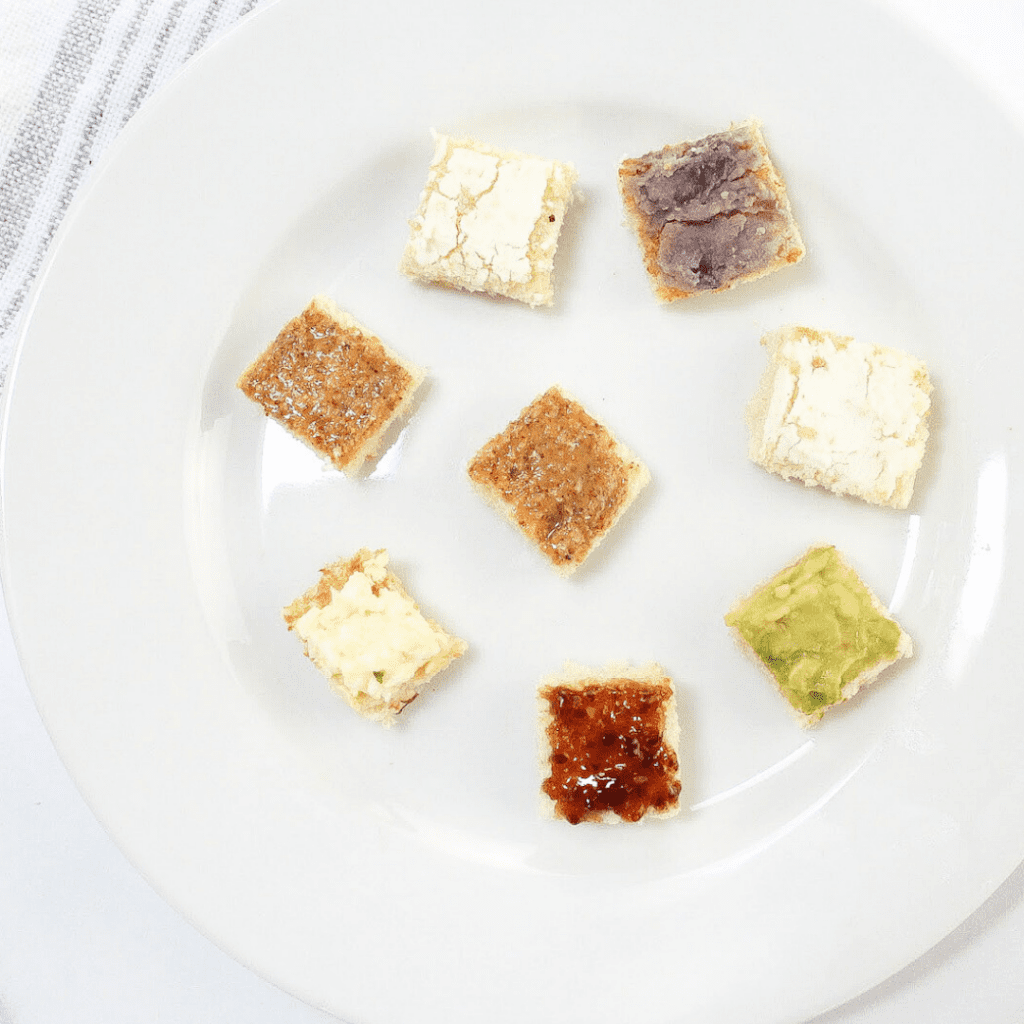
How to serve toast for toddlers 1+ years old
By 12 months of age, your toddler has had lots of opportunities eating a variety of foods and developing their motor skills, and is now likely able to eat what you’re eating with only a few modifications.
To serve bread safely to your toddler, you’ll still want to lightly toast the bread (until at least 18 months of age, as mentioned above), and then you can spread your topping on it. When cutting toast for your 1+ year old, you can still cut toast into small 1” bite size pieces that they can pick up with their pincer grasp, or practice eating using an age appropriate fork.
You can also cut up their toast into quarters, and then once they’re 18 months and up, they’ll probably be ready to try eating toast cut in half. When you first start doing this, you may need to be conscious about reminding them to take small bites, and not to over-stuff their mouth. Learn about some of our best tips from a Speech Language Pathologist on mouth stuffing and big bites.
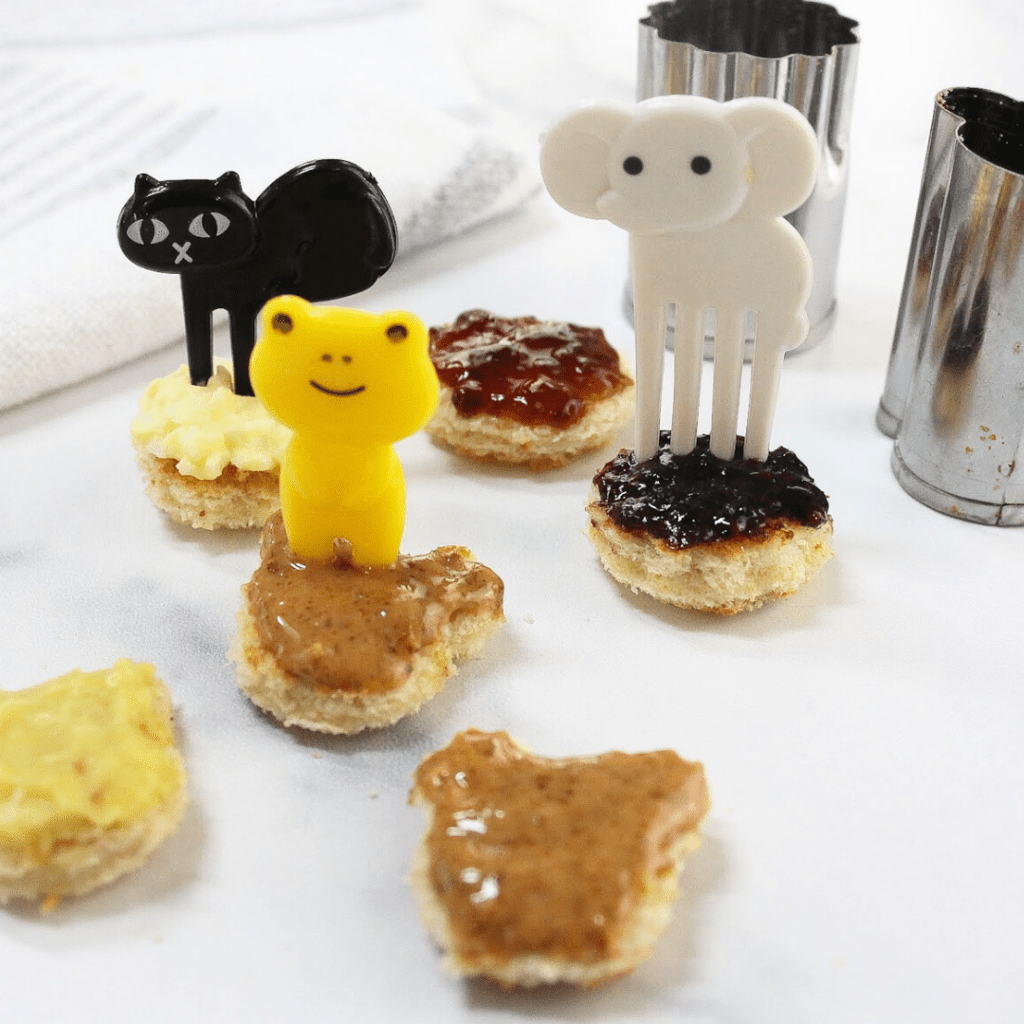
Bonus tip: To help your toddler accept the new flavor combinations we’ll suggest below, use the power of novelty! Make toast fun and enticing for your little one to try by using vegetable cutters and cookie cutters to cut toast into different shapes. You can also offer them cute food picks to eat the small pieces of toast – these simple hacks make a huge difference for picky toddlers!
We have some of our favorites linked in our US Amazon Shop and our Canadian Amazon Shop as well. We’ve also got many other tools to help with picky eating at mealtime linked there.
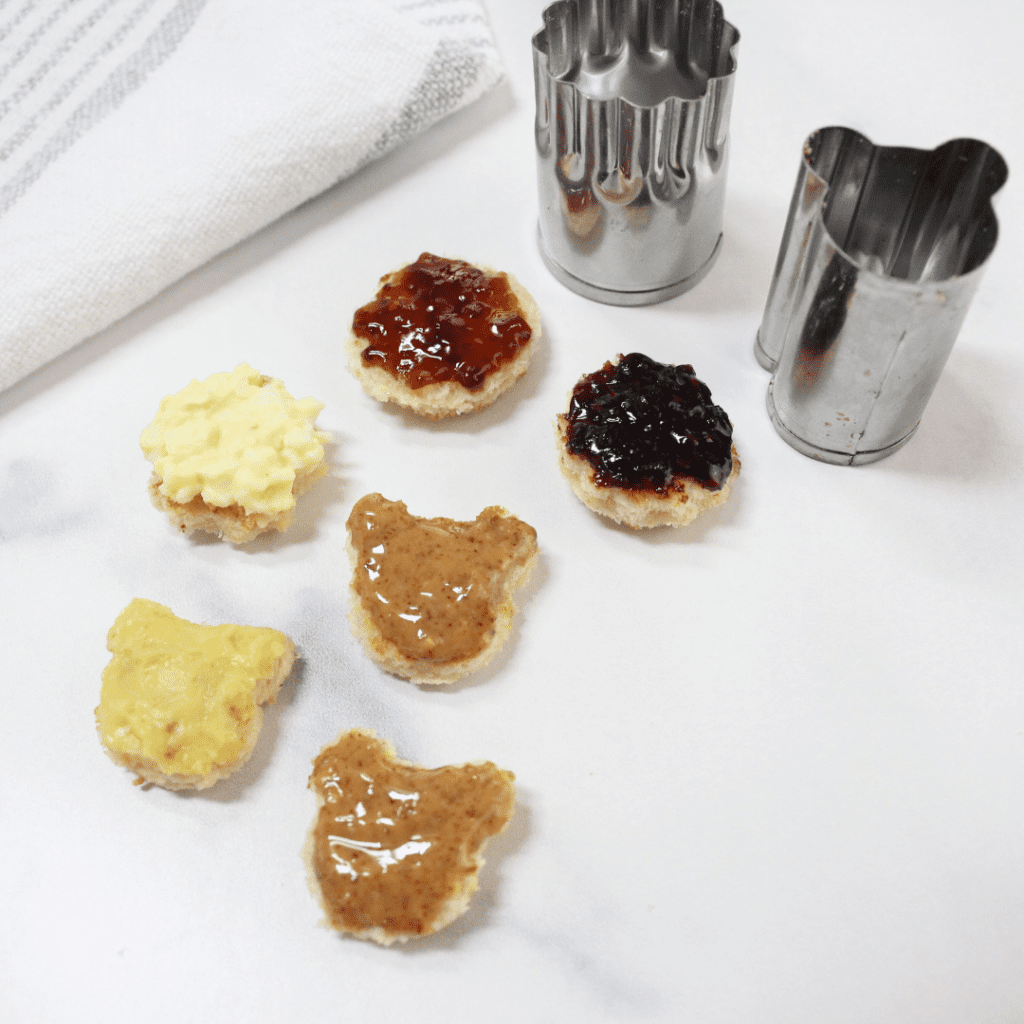
If you’re struggling with picky eating, or are looking to prevent picky eating in your toddler, check out our Feeding Toddlers online course for step-by-step guidance.
Keep reading for our ultimate list of 10 healthy toast toppings that can be used for balanced snack ideas and meals for your baby or toddler!
Benefits of healthy toast toppings for babies and toddlers
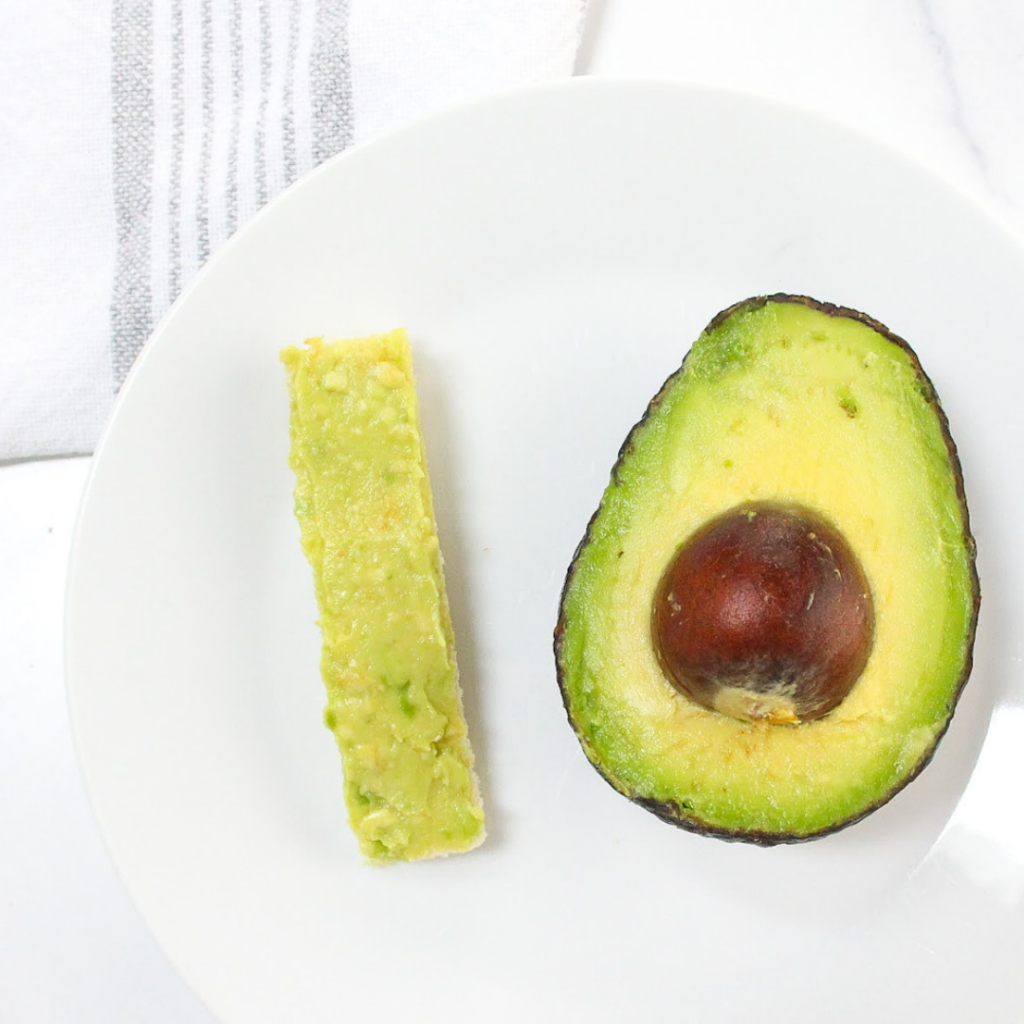
Benefit #1: Adds variety and expands taste buds
Let’s talk about babies first. Adding toppings to toast is an awesome way to introduce new foods, flavors, and textures to babies to develop their taste buds and help them become adventurous little eaters.
Did you know that the time between the ages of 6-12 months is a critical period for promoting adventurous eating and avoiding the pitfalls of picky eating? Babies are much more likely to accept new foods and flavors during this period of time, so offering a variety of different toast toppings on your baby’s toast is an easy way to expand their taste buds and “taste train” them, if you will, without adding a whole bunch of cooking for you!
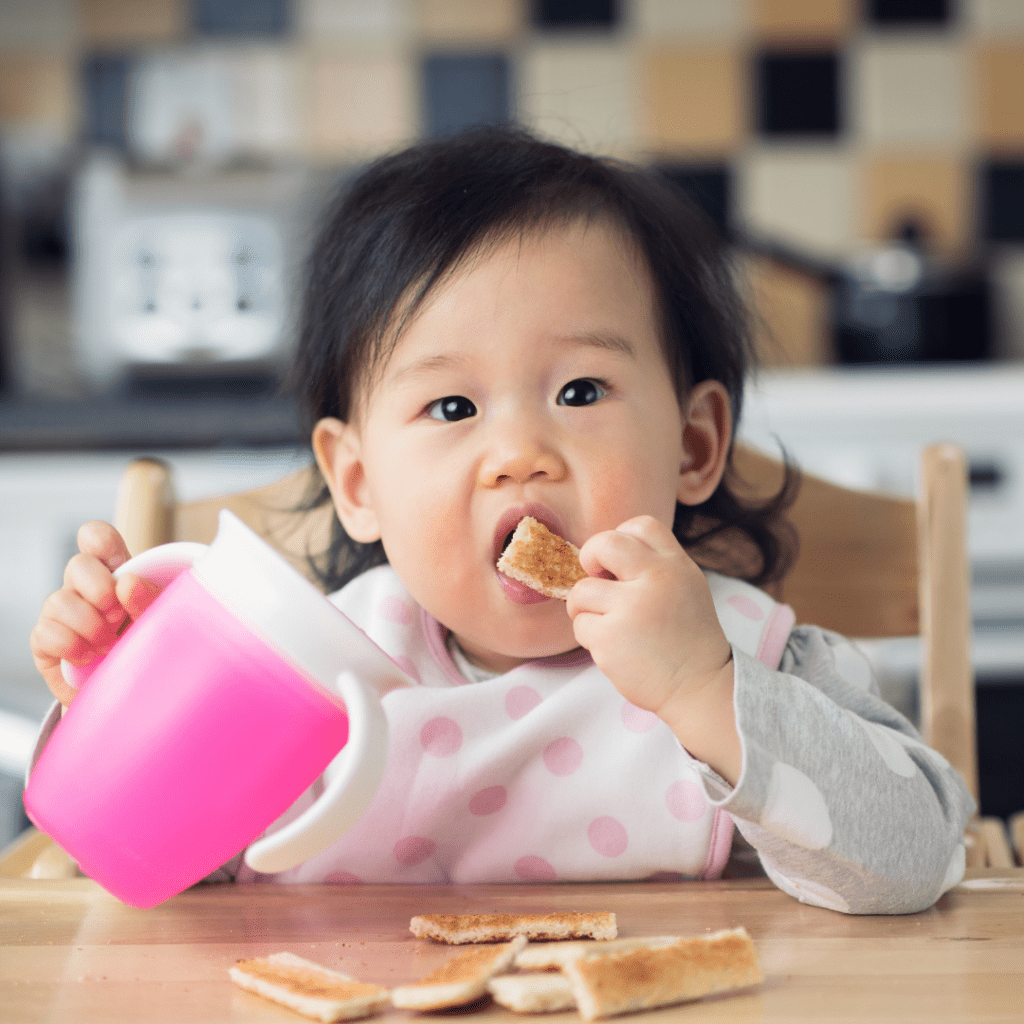
With toddlers, it’s important to make sure that food is showing up in different ways each time we serve it to them (or at least, whenever that’s possible). That’s because toddlers are known to get stuck in food ruts, wanting the same food over and over again, and losing their cool every time something looks different or new.
In order to help overcome this, we keep even simple foods like toast new and different by simply offering different spreads on top. Instead of the same ol’ peanut butter and strawberry jam, maybe you switch it up to almond butter and blueberry jam – or a different spread altogether!
This is a classic strategy that can be built on to really help expand your picky eater’s diet – all found inside our Feeding Toddlers online course. Check it out if you’re looking to make changes with how your toddler eats to prevent or overcome picky eating.
Benefit #2: Toast is a great vehicle for hard to eat foods
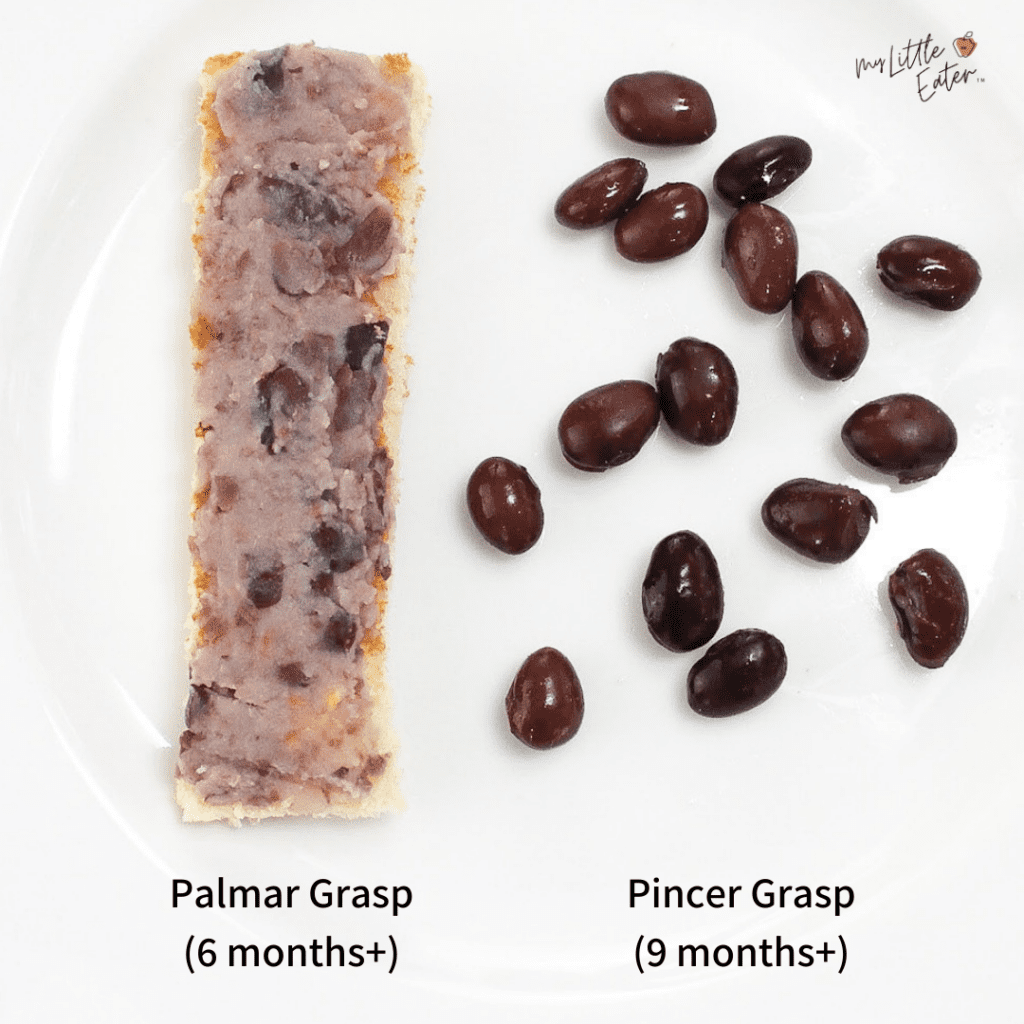
Another benefit of using toast toppings is that it’s a great way for your baby to eat foods that they otherwise might not be able to eat easily. For example – flaked tuna or beans are hard for babies to pick up with their fingers until they develop their pincer grasp (around 8/9 months old). Nut butters form into big globs and are too thick on a spoon, which poses a choking hazard. Avocado can be slippery, making it difficult for your baby to hold onto and bring to baby’s mouth.
You get the point.
Mashing hard-to-pick-up foods and spreading them on toast is an easy way to include foods in your baby’s diet that provide specific nutrients they need.
Benefit #3: Toppings make toast easier and safer for babies to eat
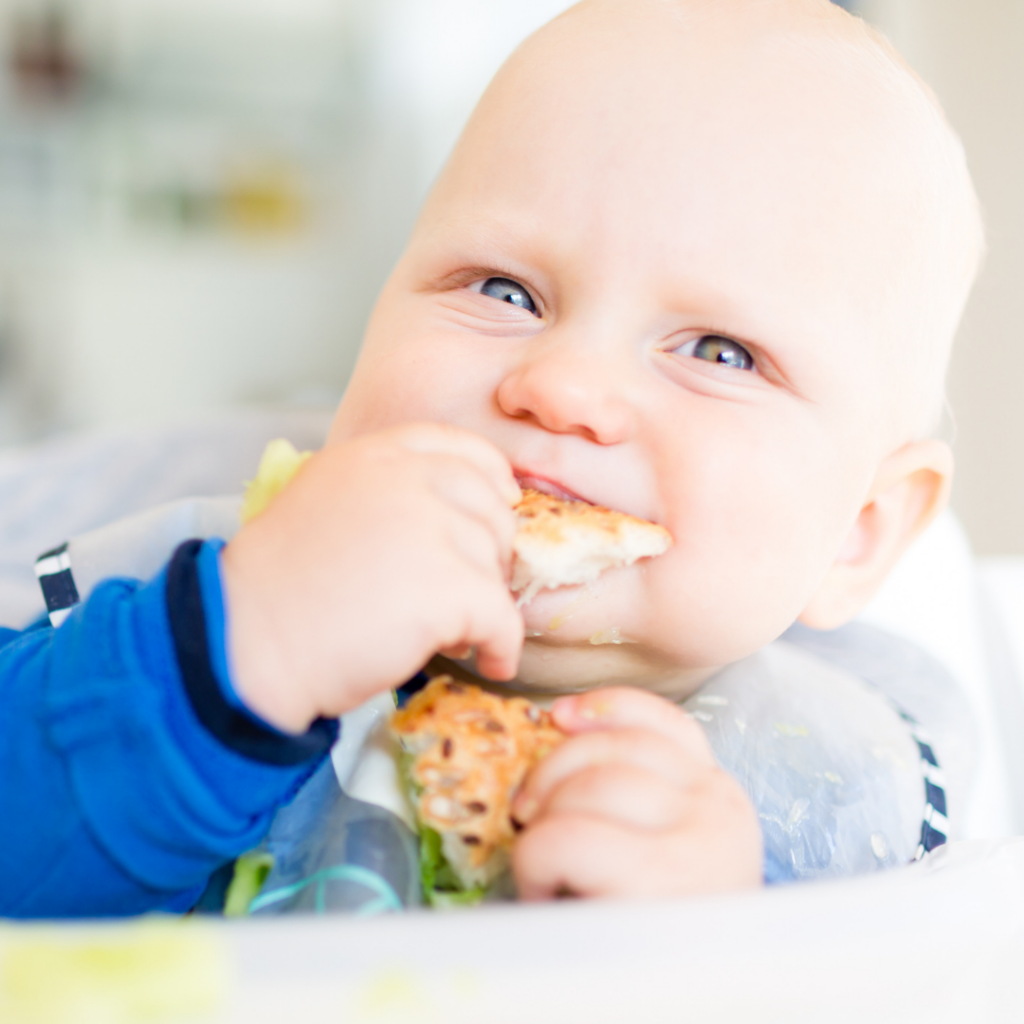
Dry toast without any toppings poses an increased risk for choking for both babies and toddlers. It’s very hard to chew and requires a lot of saliva production to moisten it enough so that it can be safely swallowed. Toppings will ensure the toast is moist so that it’s easier and safer for babies to eat and swallow!
Learn more about choking hazards for babies and toddlers.
Benefit #4: Toast toppings create balanced meals and snacks
On its own, toast provides a great source of carbohydrates and, depending on the type of bread, contains some fiber as well! But, carbohydrates and fiber aren’t enough to make up a balanced meal. Instead, we recommend always adding a topping that follows our FFP™ Rule for balanced meals.
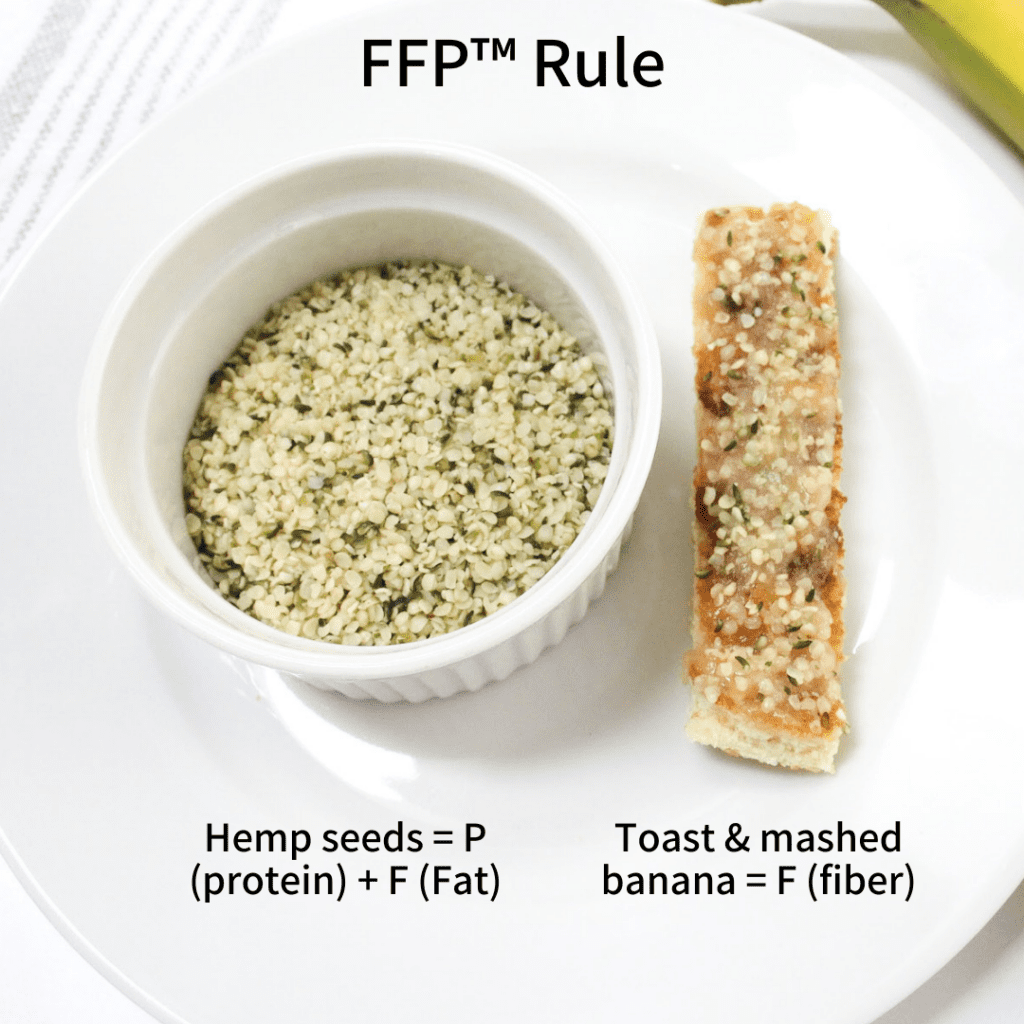
This is an easy formula for building meals and snacks that we always recommend to clients. FFP™ simply stands for Fat, Fiber, and Protein. The rule is that every meal should include a good source of each of these three major nutrients, while snacks should include at least two out of the three nutrients.
Since toast is part of the fiber category, you need to add toppings from the protein and/or fat category to create a more balanced plate for your baby or toddler. This will provide more calories, and the right mix of nutrients, which will better balance their blood sugars and keep them full until their next meal or snack.
Food allergies and toast toppings for babies
You may notice that some of the healthy toast ideas for babies and toddlers that we recommend below are considered highly allergenic foods. For example, dairy, peanuts, and tree nuts, like almonds. It’s recommended to introduce allergenic foods at around 4-6 months of age, or soon after starting your baby on solids, and toast toppings are a great way to do this!
Since bread contains wheat, and wheat is an allergen, toast is also considered to be a highly allergenic food. When introducing allergens to your baby, it’s very important to offer them one at a time. Don’t offer one of the top food allergens as a toast topping to your baby until wheat as an allergen has been ruled out first.
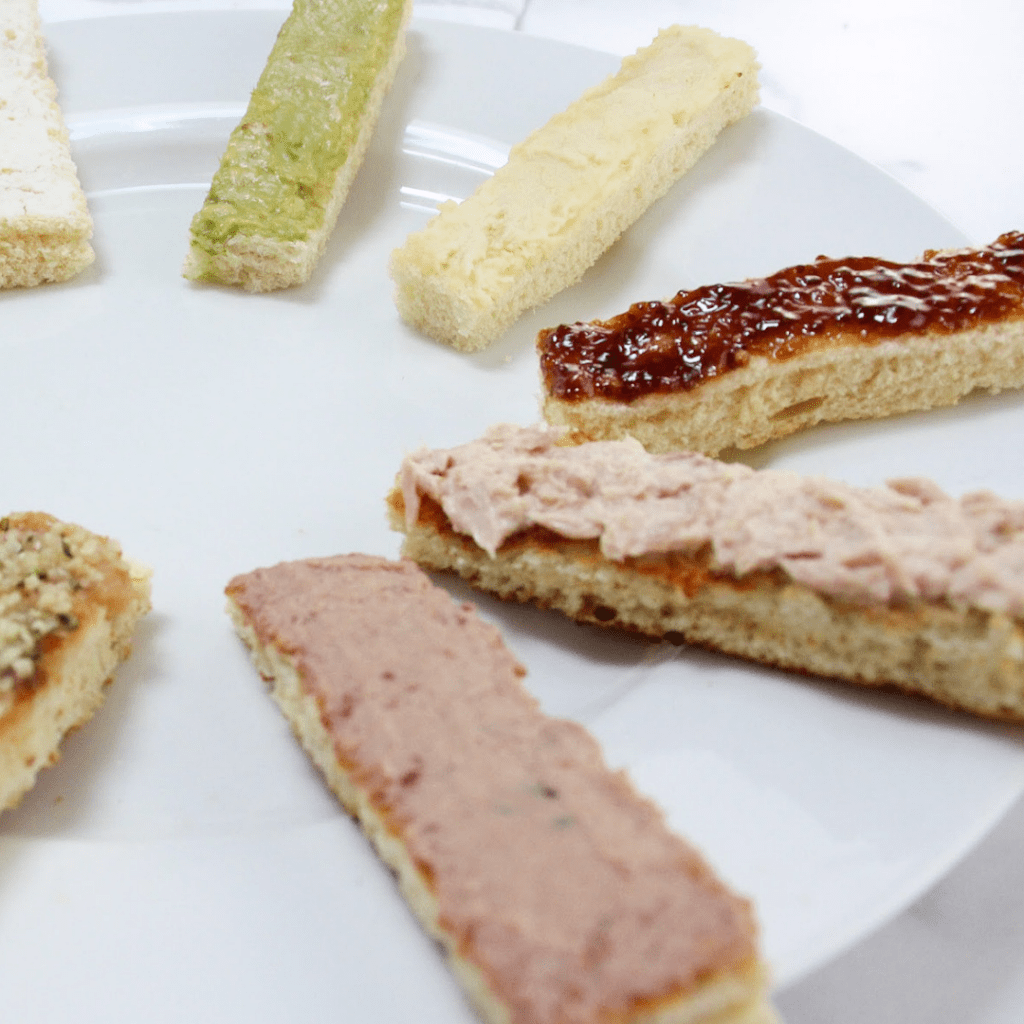
We completely understand that introducing allergens can be stressful, but we don’t want you to worry. We have a blog post with ALL the information you need on introducing highly allergenic foods to your baby in a confident manner!
And, if you want more information on how to safely start solids with your baby (whether with purées or finger foods) and healthily feed them up until 12 months of age, check out our Baby Led Feeding online course for an expert and research-backed step-by-step plan.
Let’s get to our favorite healthy toast toppings for babies and toddlers!
10 Healthy toast toppings for maximum nutrition
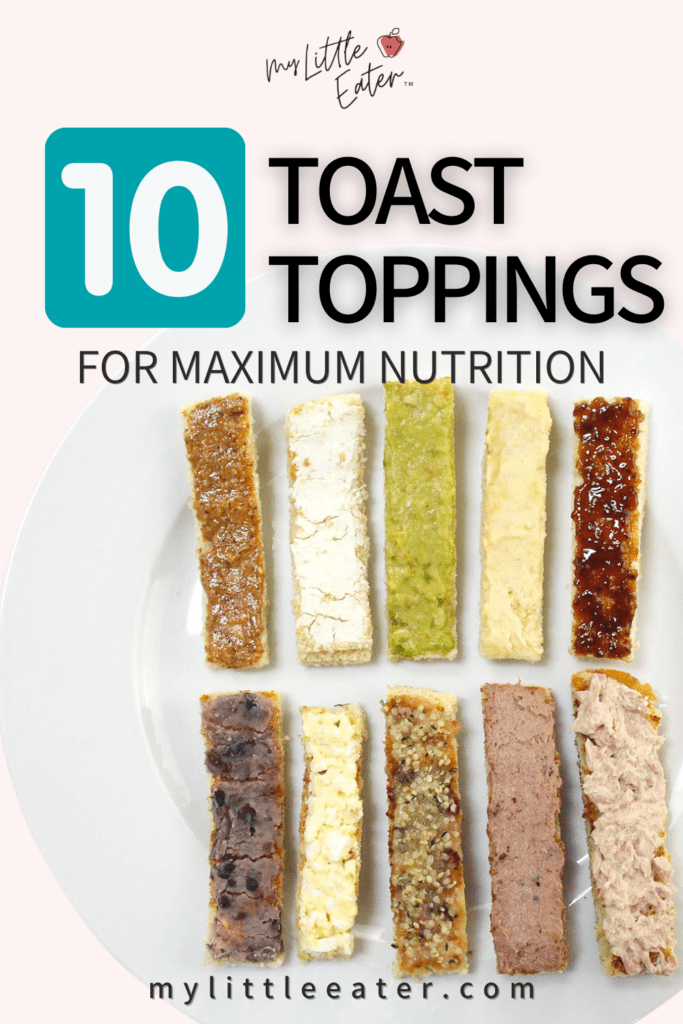
1. A thin layer of nut butter (or seed butter)
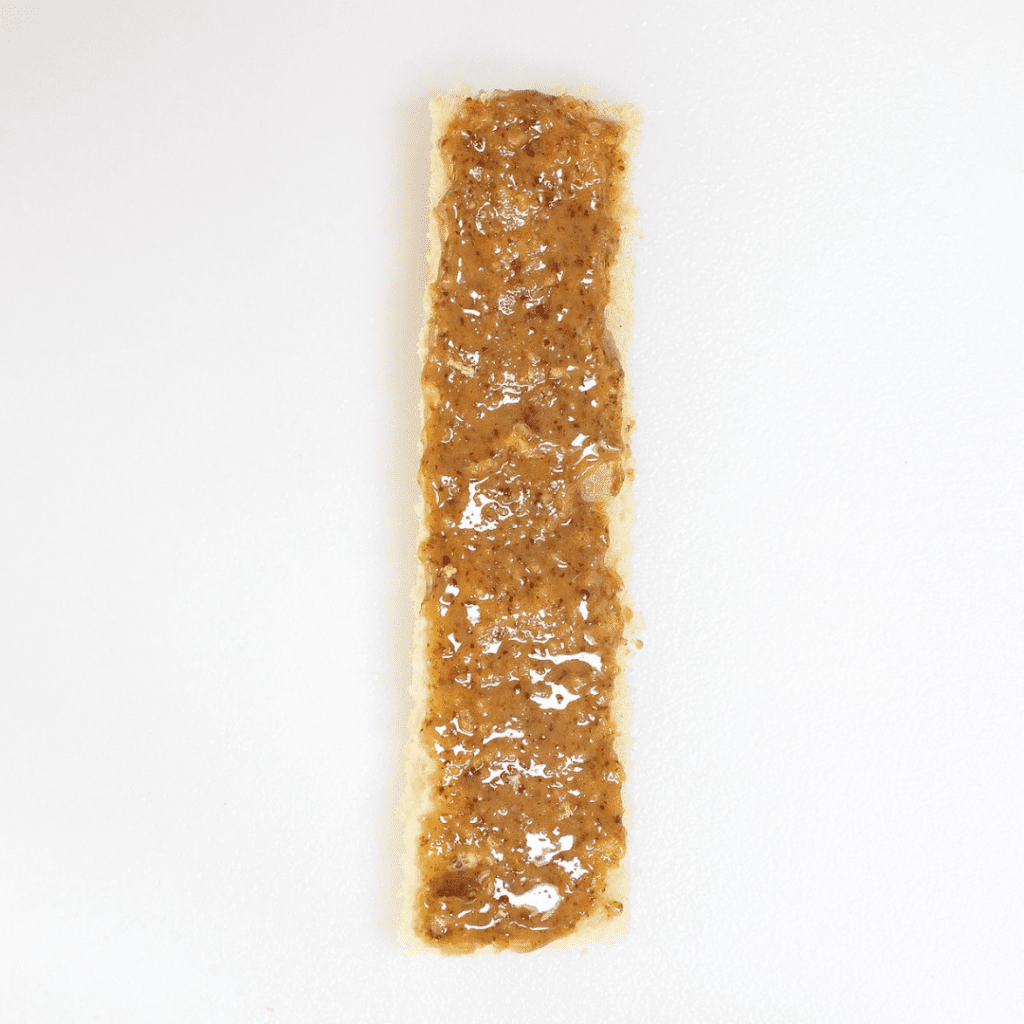
Nut butter and seed butters are great to add as a toast topping as they provide an excellent source of healthy fats for your little one! Some of our favorites are peanut, almond, hazelnut, pumpkin, and sunflower seed butter. Choose an all-natural version (just the nut/seed, oil, and maybe salt). Avoid overly processed ones with added sugar, canola oil, or other ingredients.
Our favorite options are by nomz – they have 4 types of nut butters (almond, macadamia, hazelnut, and pistachio). All are delicious and made with just a single ingredient! They’re perfect for introducing these tree nuts to baby for the first time. Use our code MYLITTLEEATER for 10% off your purchase!
It’s important to note that nut and seed butters should be spread in a thin layer on toast, as large amounts are sticky and can become a choking hazard.
And since wheat and nut butters are both highly allergenic foods, only serve this combination once you’ve ruled out at least one of these allergens already.
2. Cottage, ricotta, or goat cheese
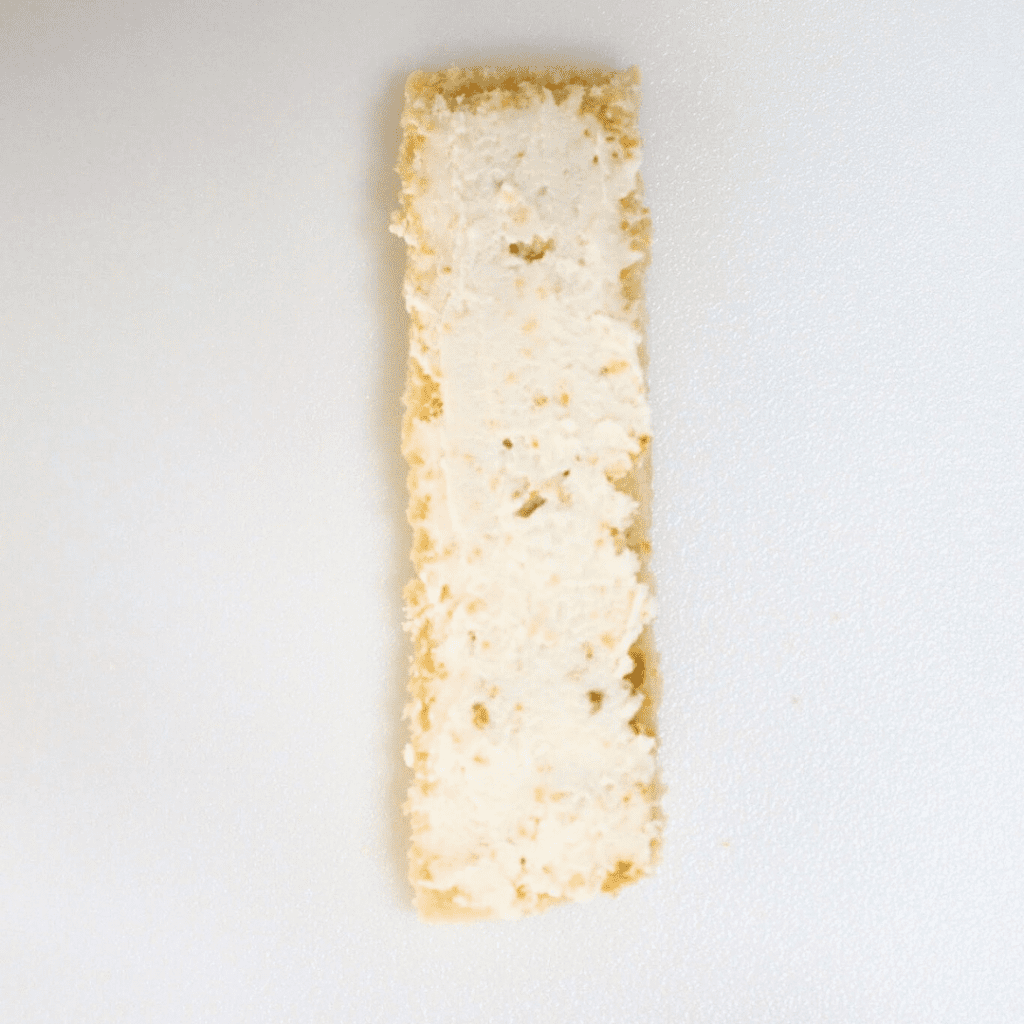
Dairy products are a great source of protein, fat, and calcium for your little one! Dairy is also a highly allergenic food, so ensure that there’s no allergy to wheat first before adding in a second allergen, such as dairy.
Bonus tip: Watch the sodium content in cheese if using it as a toast topping, as it tends to be a little high. If adding cottage cheese as a topping, you can dilute the cottage cheese in a little bit of plain yogurt so that there will be less salt per serving. Another easy swap to make would be to opt for homemade Labneh over cream cheese on toast.
We don’t want you to stress about this too much though, just be aware of it and try to offer other foods that are low sodium options throughout the day, or the next day, to balance it. Learn more about salt for babies and why we don’t need to worry as much as you may think.
3. Mashed avocado
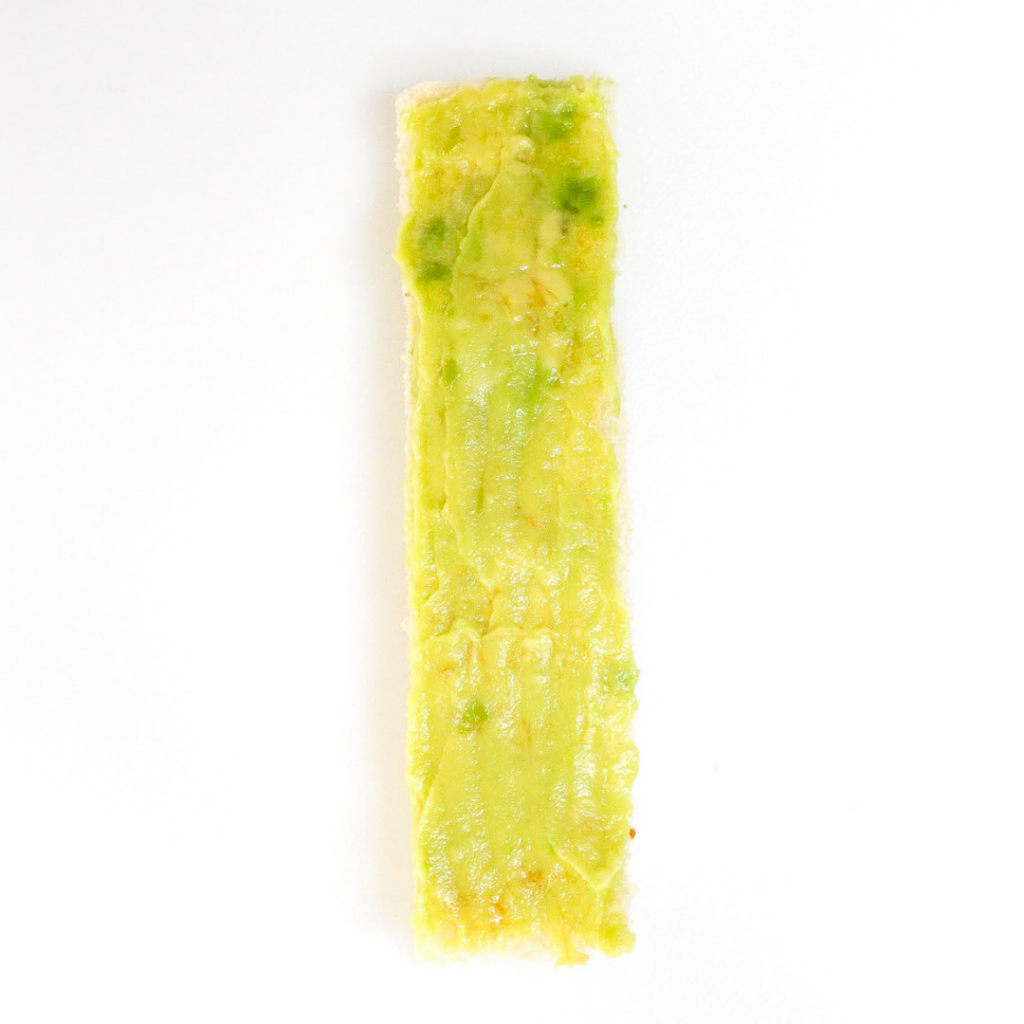
We LOVE avocado toast for your baby or toddler! It’s rich in healthy fats which can promote proper growth and development. Avocados are also an excellent source of fiber, vitamin E, K, C, and many other nutrients to help your little one flourish.
4. Hummus
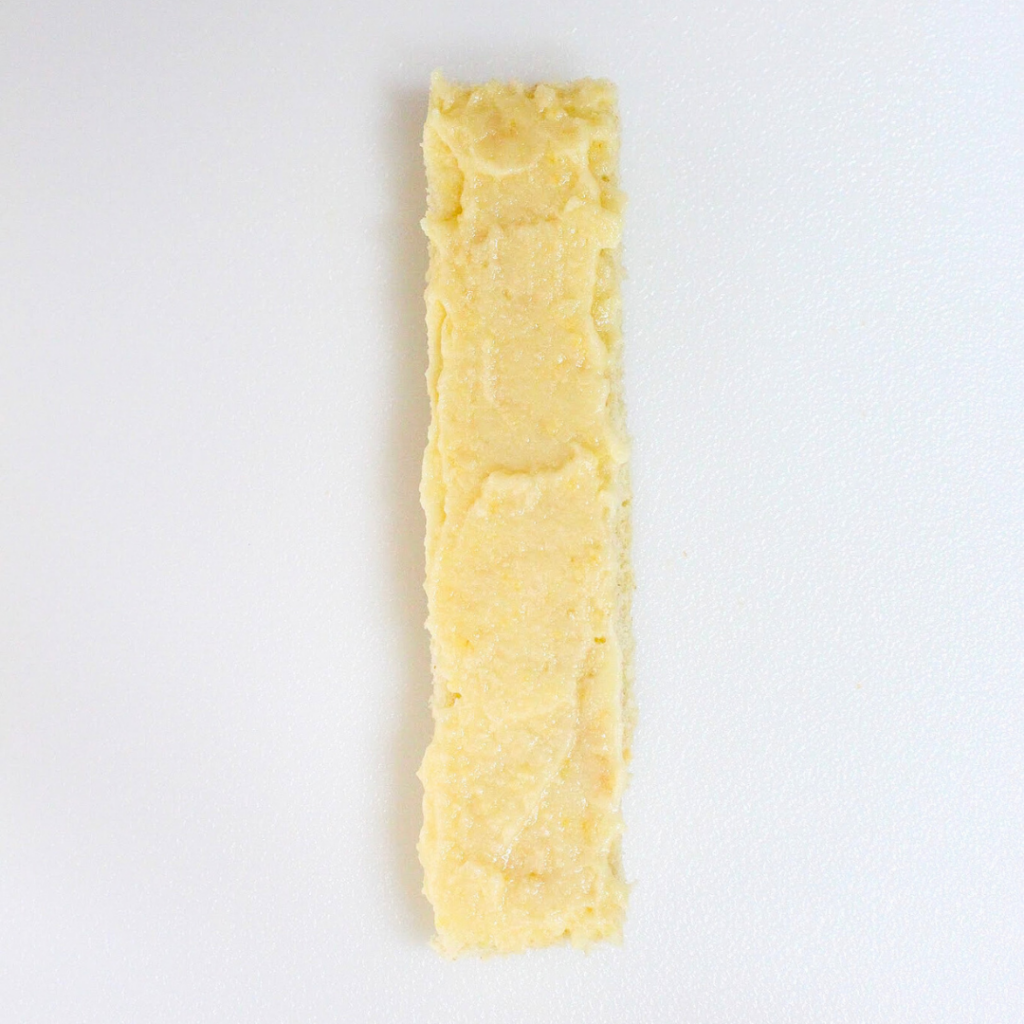
Hummus is another one of our easy healthy toast ideas that offers a great calorie add-on and source of healthy fat! Hummus also comes in many different flavor combinations, such as roasted red pepper and roasted garlic, that will add variety to your baby’s or toddler’s meal.
It’s important to note that hummus often contains tahini as an ingredient, which is made out of sesame seeds, a highly allergenic food. As with nut butters and dairy, make sure you’re certain that there’s no allergy to wheat first before offering hummus as a toast topping.
5. Smashed berries or homemade jam
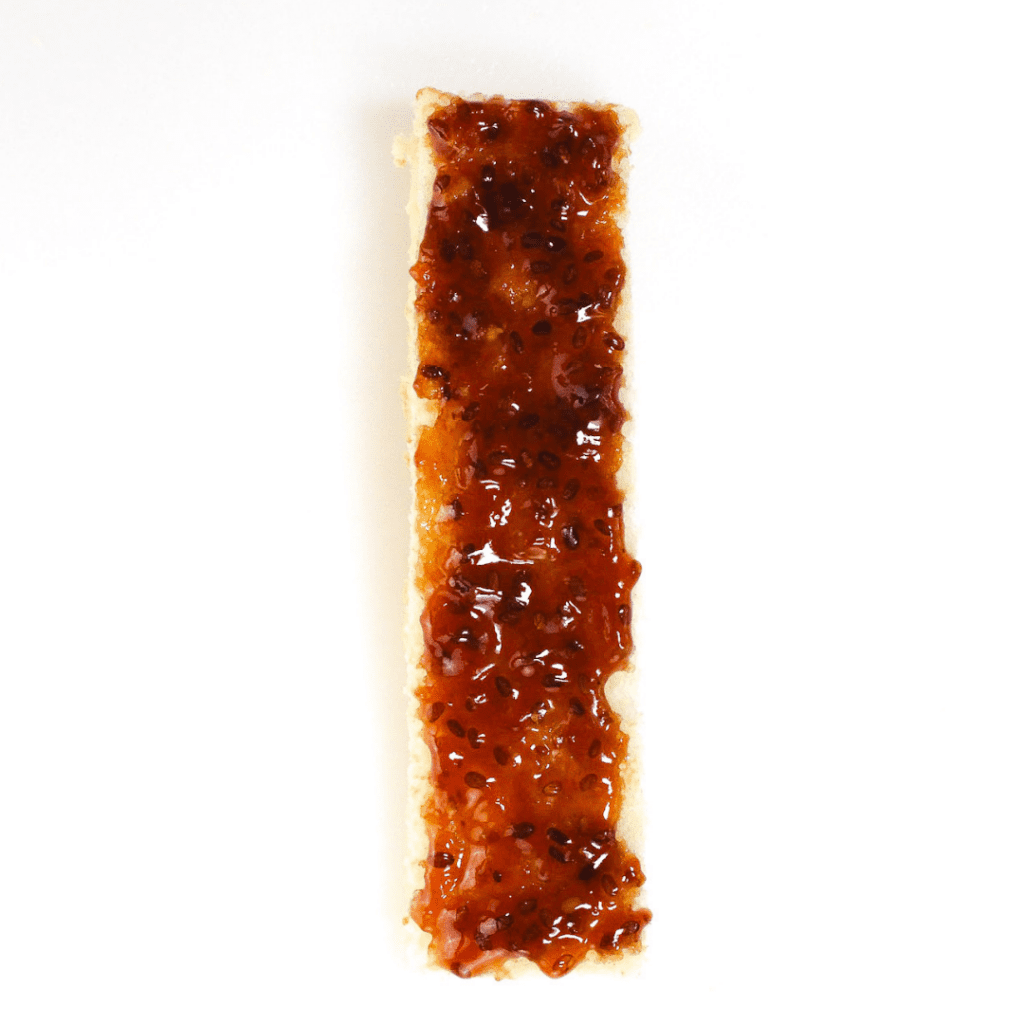
Using mashed up fruit, such as mashed raspberries, as a toast topping for your baby or toddler is a great way to add some sweetness to a meal or snack without any added sugars! If you want to add a little extra boost of nutrition to the mashed fruit, try hemp, chia, or flax seeds sprinkled on top. Because these seeds are so small, they’re not considered a choking hazard.
Learn more about the amazing benefits and nutritional power of these seeds for babies and toddlers.
Homemade jam is another great option for a toast topping as store bought jam often contains a lot of sugar.
6. Mashed beans, lentils, or chickpeas
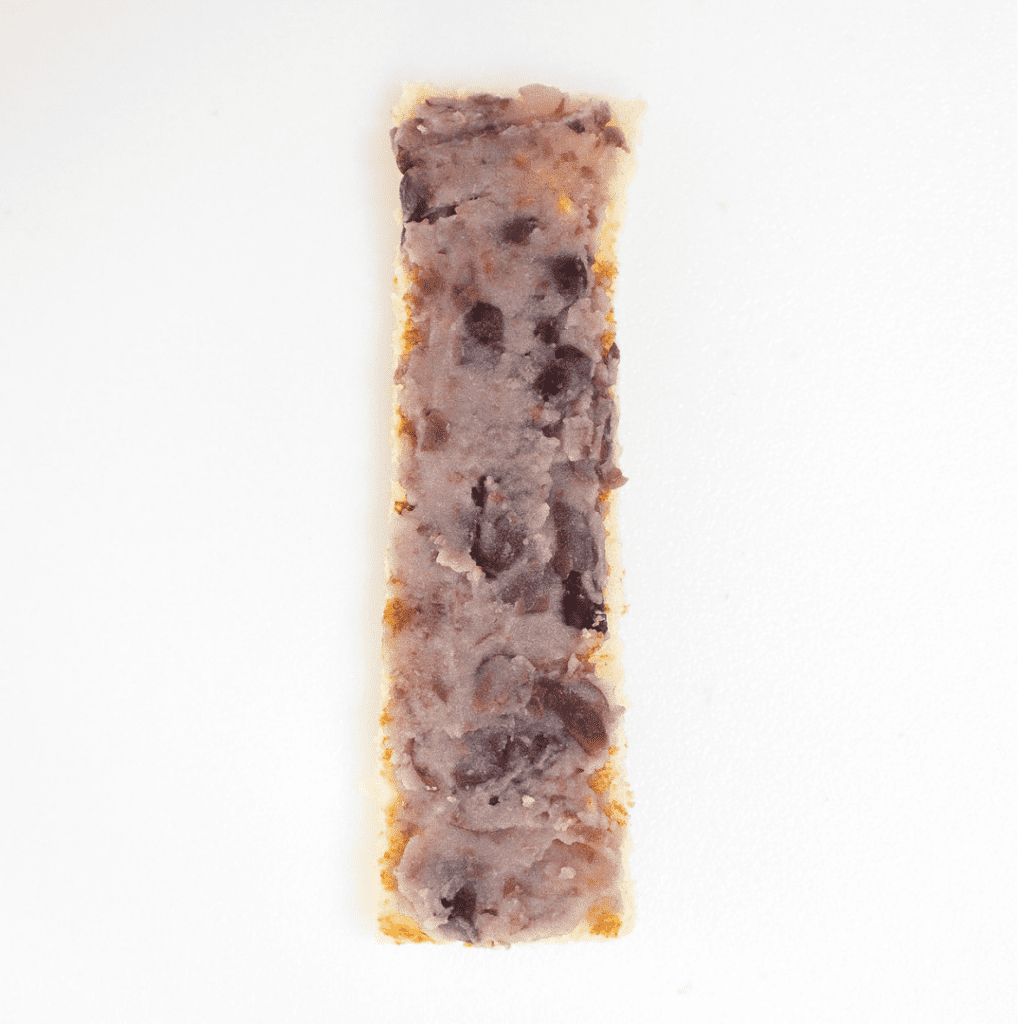
Beans and lentils are also a great toast topping as they’re rich in iron which helps your baby meet their iron requirements! Until babies master their pincer grasp, this is a really great way to include beans in their diet which might otherwise be too hard for them to pick up unless you cook them in some sort of burger. All you have to do is mash the beans or lentils with the back of a fork and then spread them on the toast!
Canned beans, lentils, or chickpeas are perfectly fine for a quick and healthy option. Just aim to choose canned products stored in a BPA free liner and, if possible, choose low or no salt versions. If you do have a higher salt version, rinse the beans, lentils, or chickpeas under water once or twice to remove some of the excess salt – and voila! Perfect to serve up without having to cook anything.
Bonus tip: To increase iron absorption, you can add a source of vitamin C to the meal. We suggest squeezing a bit of lemon juice on top of the bean mixture, which also provides greater variety in flavor for your little one to try – a win-win!
7. Mashed eggs mixed with Greek yogurt
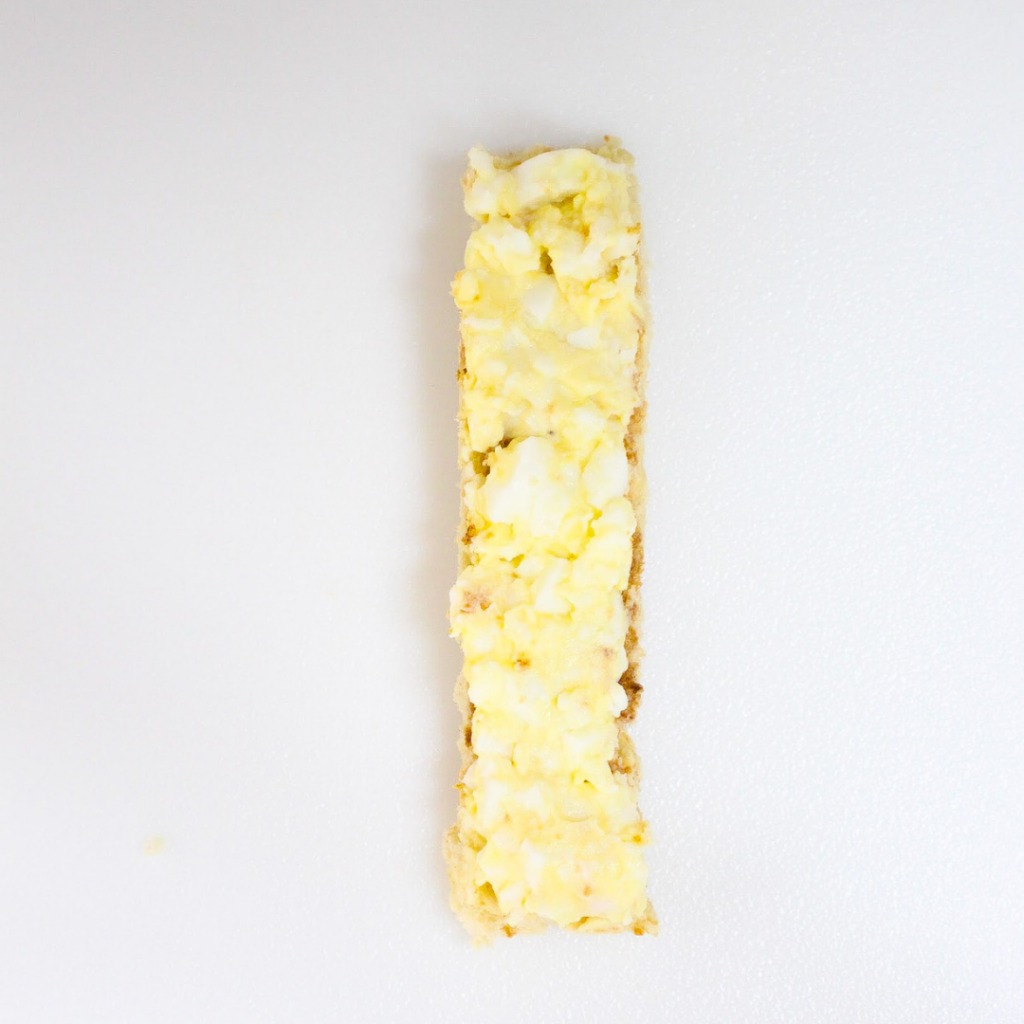
Mashed eggs mixed with Greek yogurt is a nutritious toast topping that’s a meal in and of itself! This combination is full of fat, calories, iron, and protein that will keep your baby or toddler full for longer. The eggs can be boiled ahead of time, or you can fry or scramble an egg on the spot, mash a bit and mix it into whole fat yogurt so it spreads a bit easier.
To increase variety and exposure to different flavors in your baby’s diet, try mixing this topping with different spices each time you make it. Dill is one of our favorites! You can also try mashed egg mixed with avocado, hummus, mayo, or tomato sauce.
This toast topping includes 3 top allergens, including the toast, so make sure that at least two of the foods have been previously tested and ruled out as an allergen before offering this combination to your baby for the first time.
Bonus tip: Make sure that the egg is cooked really well so that there’s no runny yolk before serving to your baby to reduce the risk of foodborne illnesses.
8. Mashed banana with hemp seeds
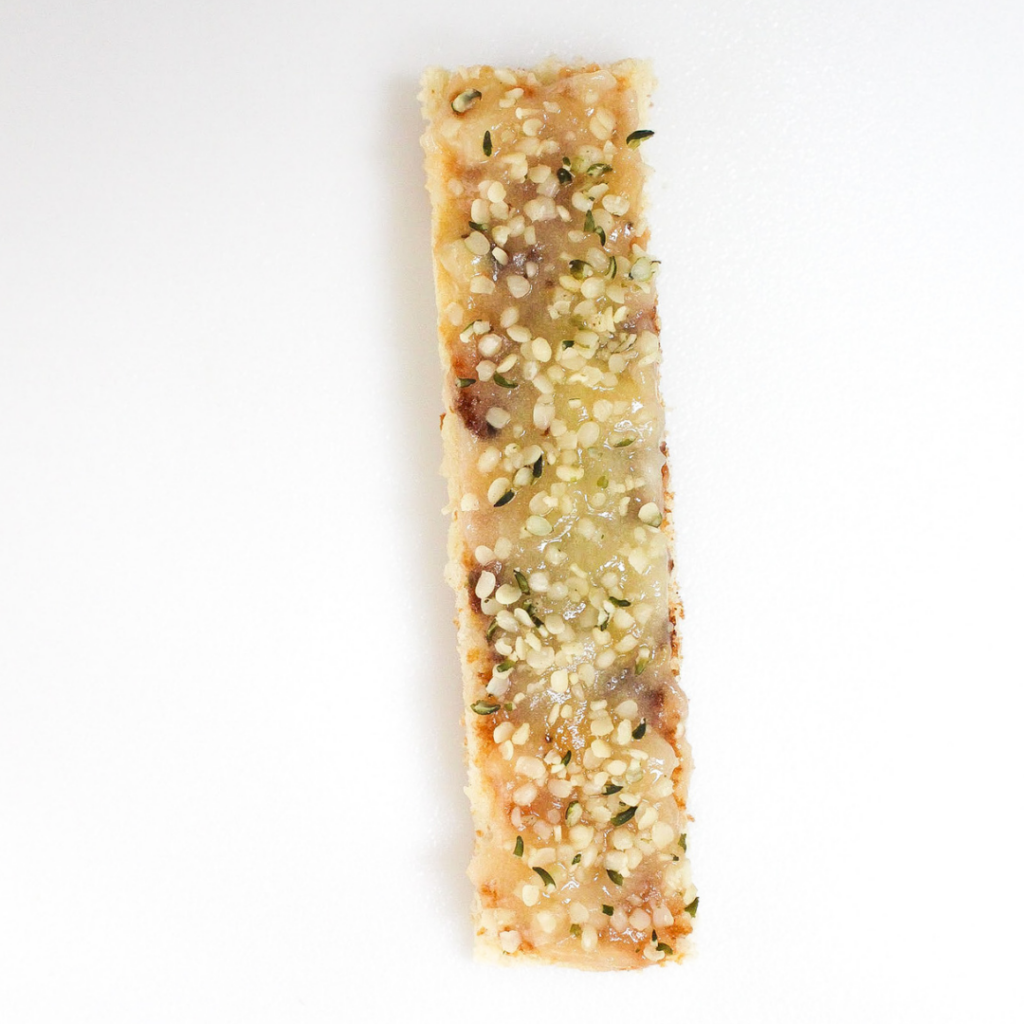
This is probably one of the easiest toast toppings to whip together! Plus, not only does the banana offer fiber, it also provides potassium and other important nutrients for your little one.
Remember how we talked about our FFP™ Rule previously? Toast and banana provide lots of fiber, but to balance it out as a snack or meal, adding hemp seeds will provide protein and a healthy source of fat. This gives that extra boost of nutrition and keeps your baby or toddler full for longer!
Our favorite superseeds are the ones made specifically for kids by Tiny Sprouts. Make sure to get 10% off your order with the code MYLITTLEEATER.
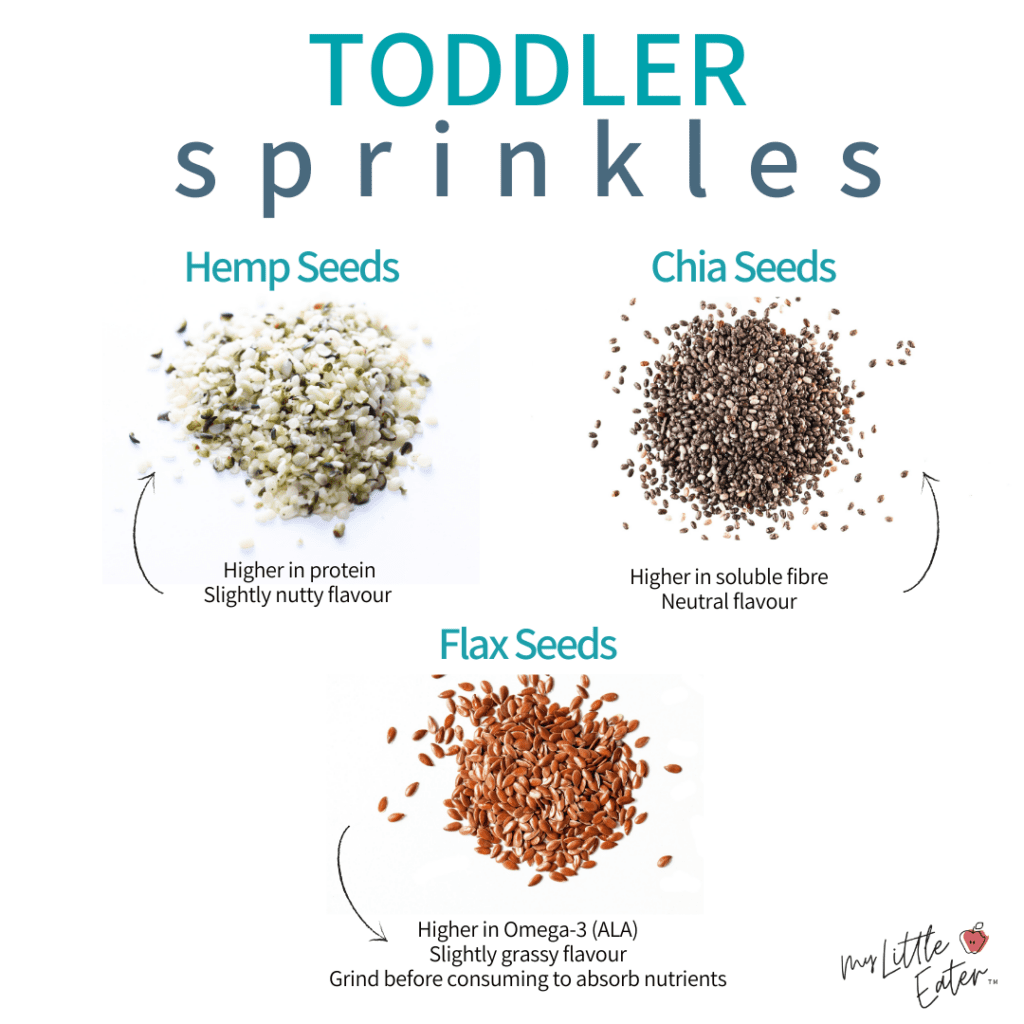
9. Puréed liver
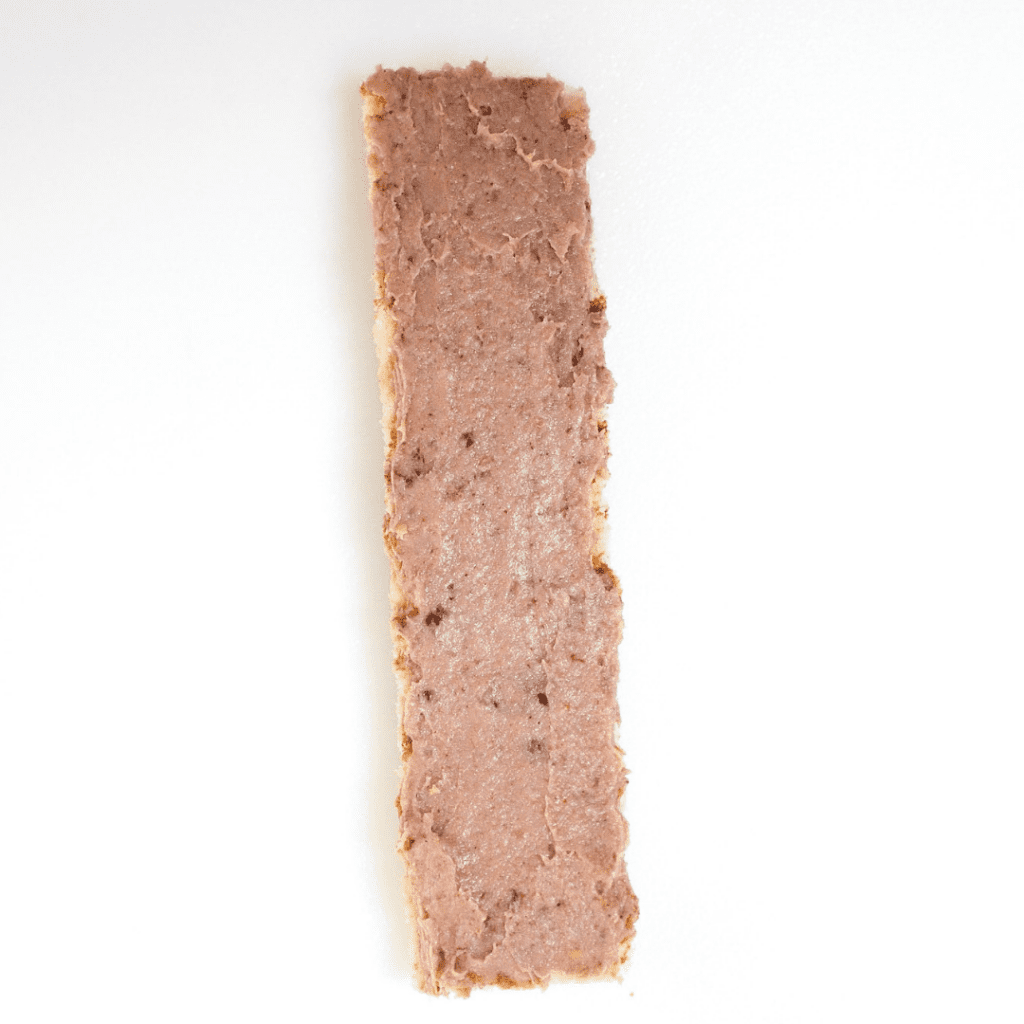
We know this is not everyone’s idea of a tasty meal, but hear us out. Liver is one of the most nutritious foods to give to your baby! It adds a huge vitamin and mineral boost as a toast topping for your baby or toddler, including iron, vitamin B12, and zinc.
It’s important to know that liver has very high levels of vitamin A. While this nutrient is important for developing the immune system, eyes, and skin of babies, in large quantities there can be a small risk of overloading on too much vitamin A. For this reason, we don’t recommend serving liver to your baby more than once per week.
10. Fish mixed with mayonnaise
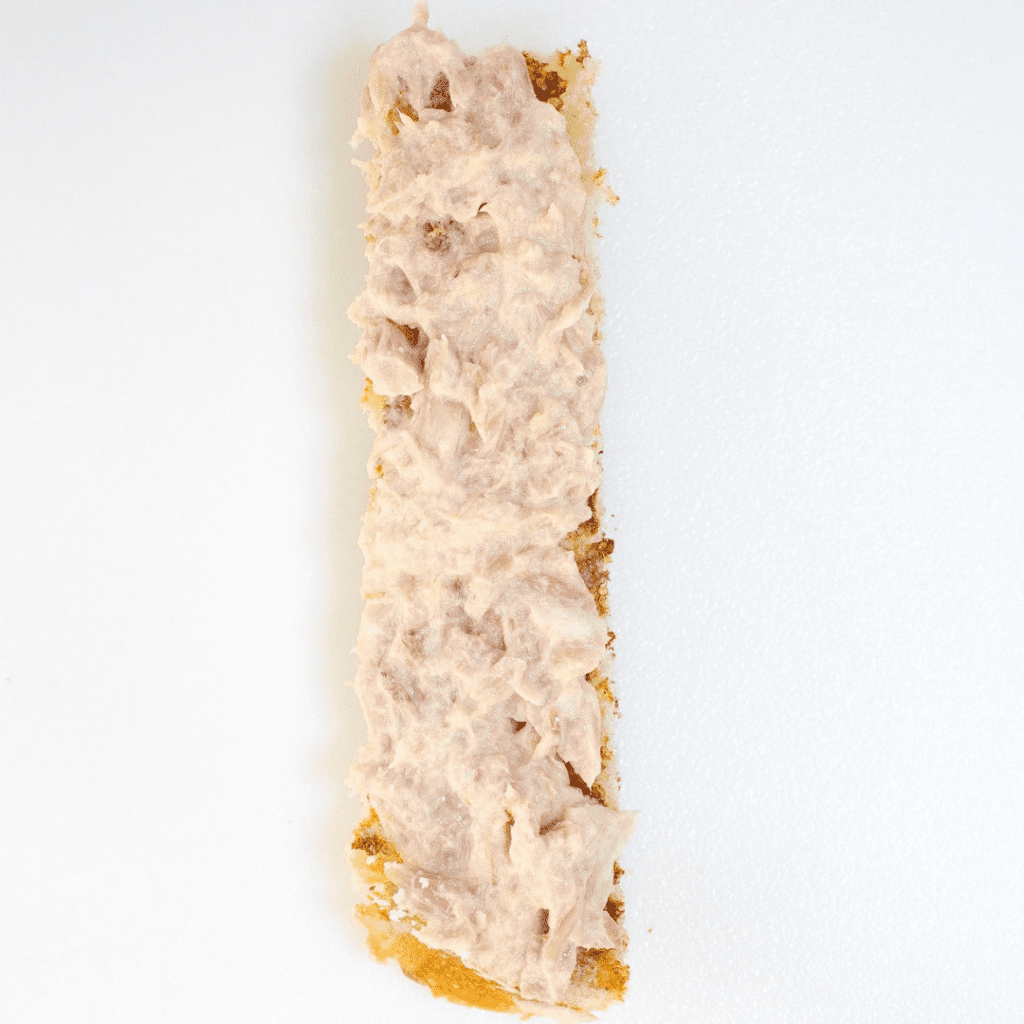
Fish offers so many great benefits for your baby and toddler. It’s high in protein, iron, B12, vitamin D, calcium, and is often high in DHA, which is very important for proper brain growth and eye development. We recommend serving fish to your baby a couple times a week, especially fatty fish.
Canned salmon is one of the best options for a toast topping as you can buy it ready to serve, and salmon is one of the highest sources of DHA. When buying canned salmon, make sure to look for one that is in a BPA free can and is free of added salt.
Mash the salmon, or break it apart into tiny pieces, and mix it with mayonnaise (or plain yogurt!) for an easy and nutritious toast topping. You can also add in spices for added variety and flavor for your baby or toddler. Some of our favorites for fish are dill, parsley, and mint.
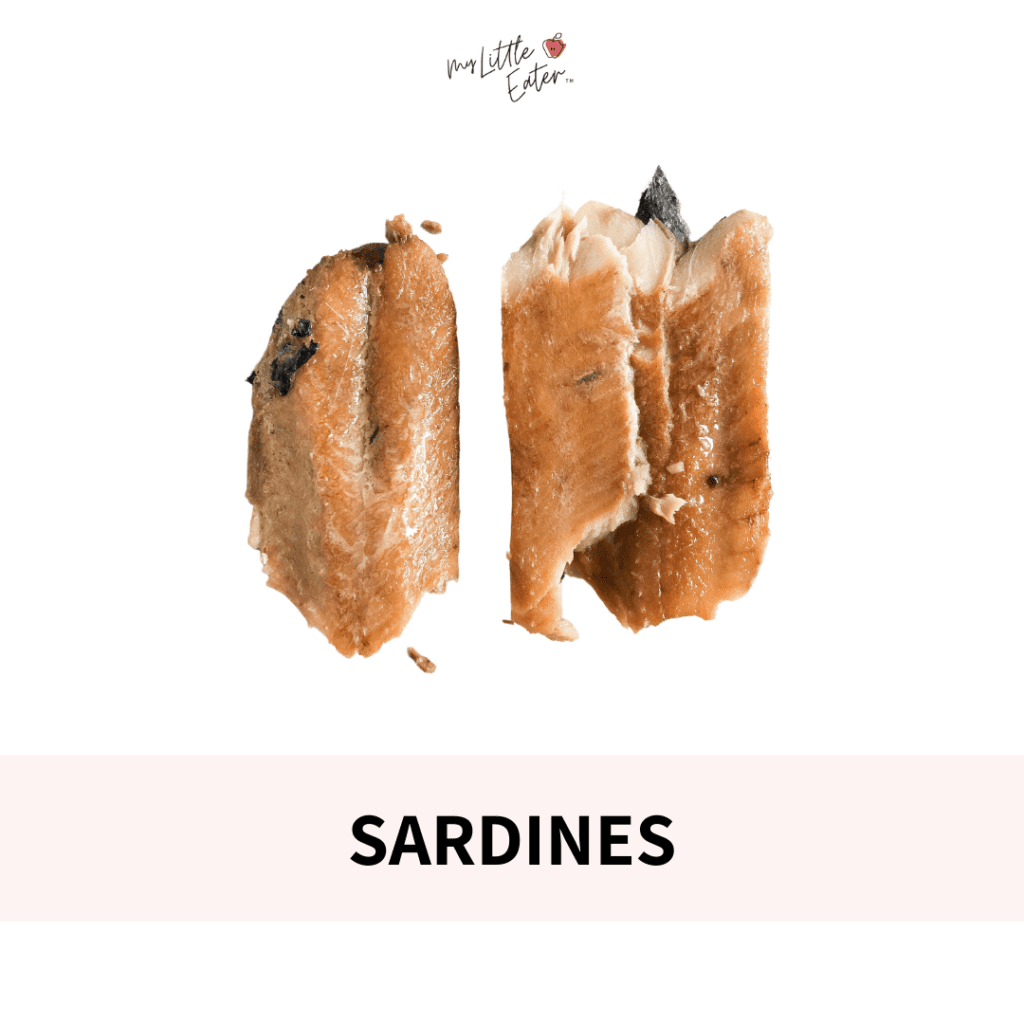
Another great fish option to add as a toast topping is canned sardines. It’s low in mercury, high in DHA, protein, and iron, and for the most part…babies LOVE it! Watch how to serve sardines to babies and toddlers below.
Different fish can expose babies to a variety of tastes, smells, and textures to broaden their list of accepted foods. Feel free to test out different types of fish on toast with your baby. Try some with mild flavors, like tilapia, and some with strong flavors, like tuna, and anything in-between!
Learn more about safe fish for babies, plus get a list of our top recommendations and which ones we suggest you avoid.
Other great toast toppings for babies and toddlers
- Full fat yogurt (regular or Greek)
- Applesauce
- Baby food pouches or other store-bought baby food (super easy in a pinch!)
- Butter or ghee (a great way to add fat and calories to a meal!)
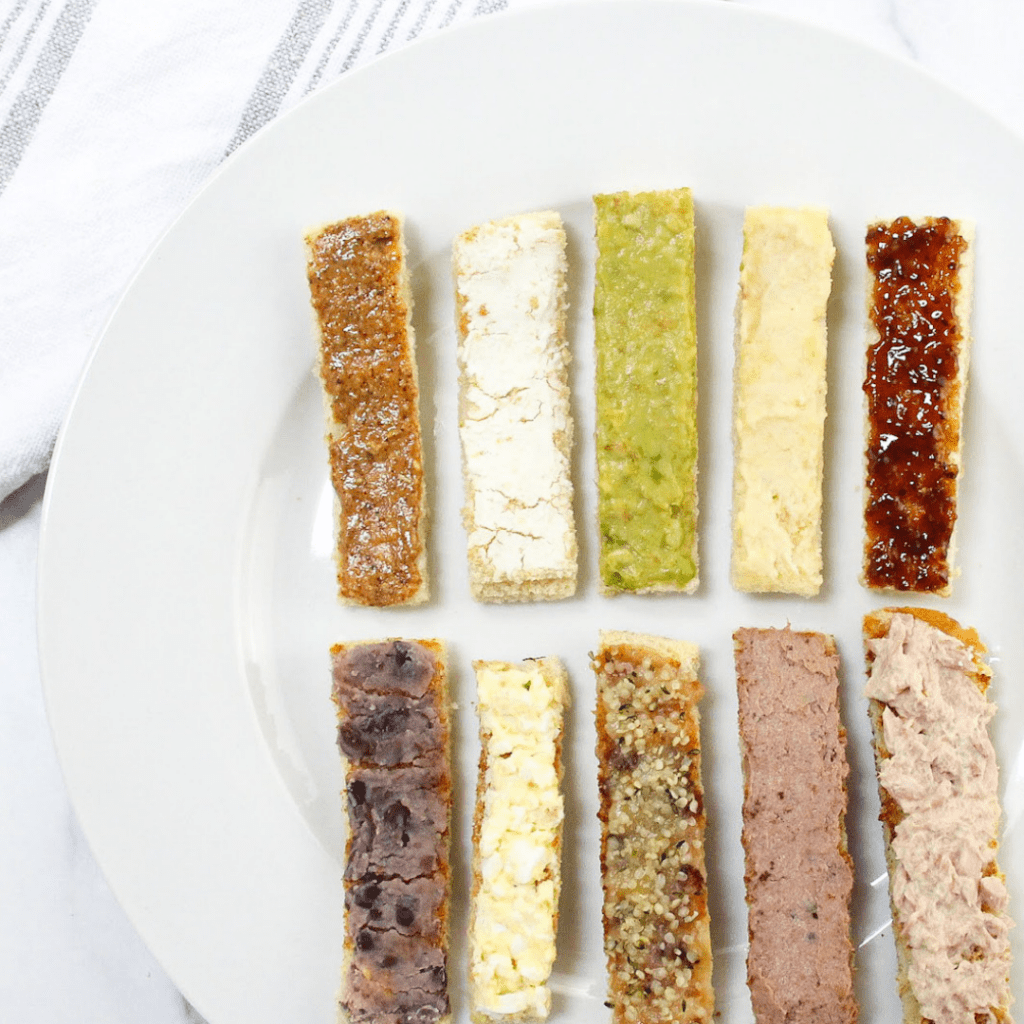
When it comes to toast toppings for babies and toddlers, there’s SO many options, which is what makes this snack and meal idea so great. Adding toppings to toast provides a healthy, nutrition packed, and balanced meal for your baby or toddler (without being too time consuming).
Don’t worry if your little one doesn’t eat it all, or only eats the toppings. Just remember not to pressure them to eat the food, to keep role modeling eating behaviors for them, and to keep providing a variety of foods, flavors, and textures. All of these things will help to ensure that they are well on their way to becoming an adventurous little eater!
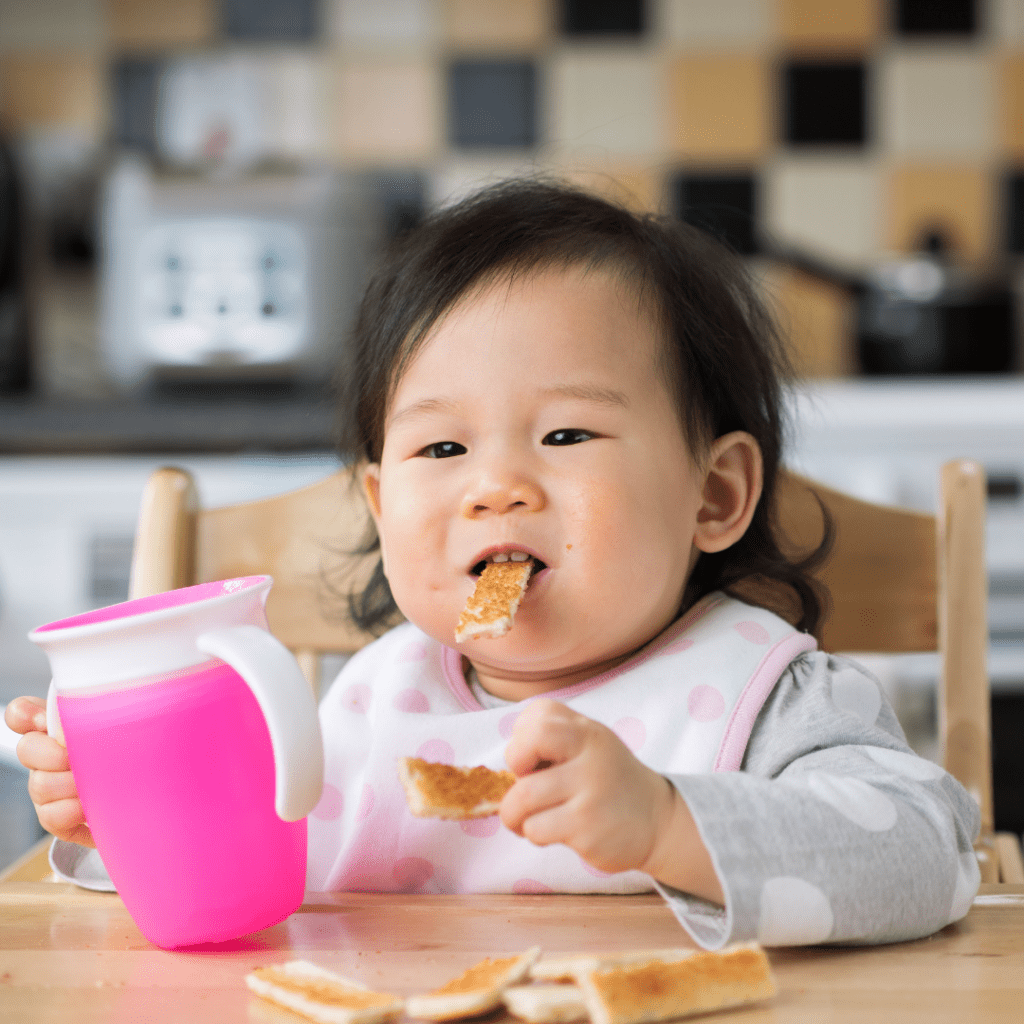
If you want a step-by-step guide on introducing solid foods to your baby following a baby led feeding approach, using either purées, whole foods, or both, check out our Baby Led Feeding course.
We teach you everything you need to know about starting solids, beginning where you feel comfortable and gradually advancing to more difficult textures from there. You have access to the course for a lifetime, and we provide ongoing support so no questions go unanswered!
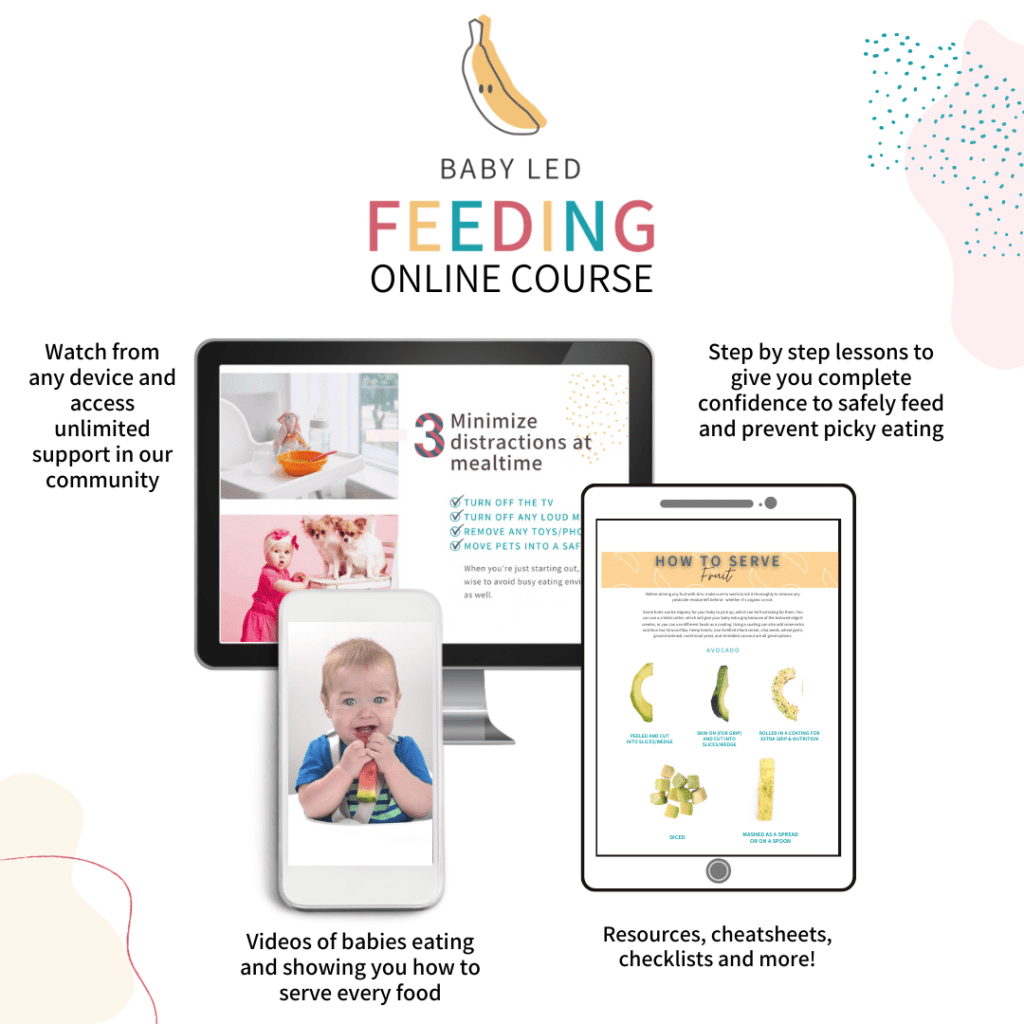
And if you’re looking to manage or prevent picky eating in your toddler, you need our Feeding Toddlers course!
Join thousands of parents who have graduated from the courses with confidence, achieved peace of mind, and have happy and stress-free mealtimes with their baby or toddler!
Pin this to save for easy and healthy breakfast inspiration!
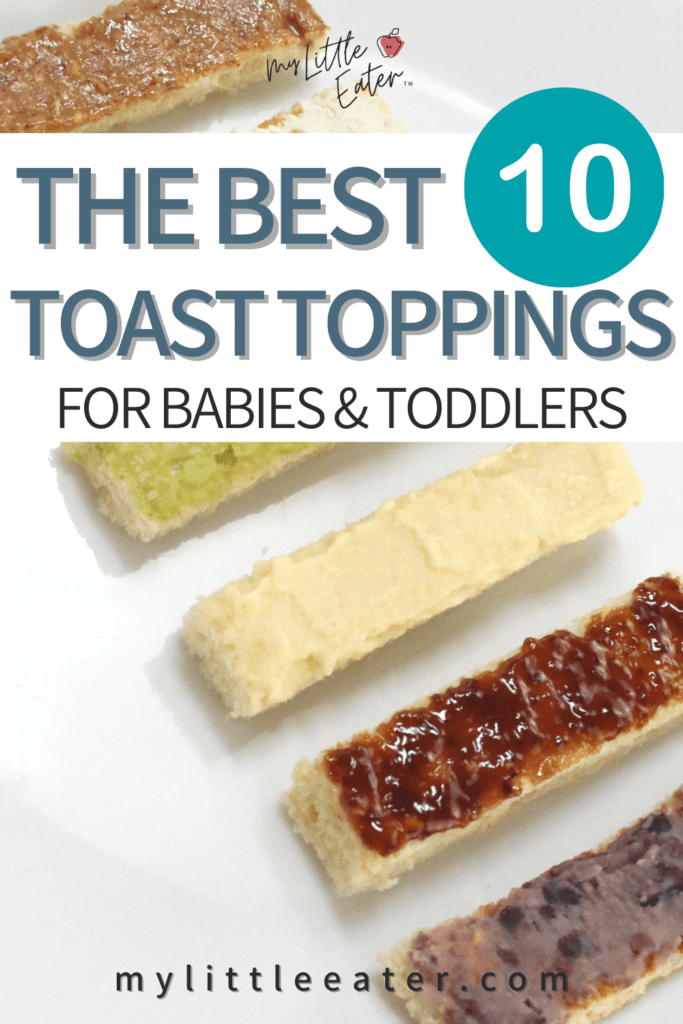

Edwena Kennedy, RD
Founder and lead Registered Pediatric Dietitian at My Little Eater Inc., creator of The Texture Timeline™, and mom of two picky-turned-adventurous eaters.

Edwena Kennedy, RD
Founder and lead Registered Pediatric Dietitian at My Little Eater Inc., creator of The Texture Timeline™, and mom of two picky-turned-adventurous eaters.
